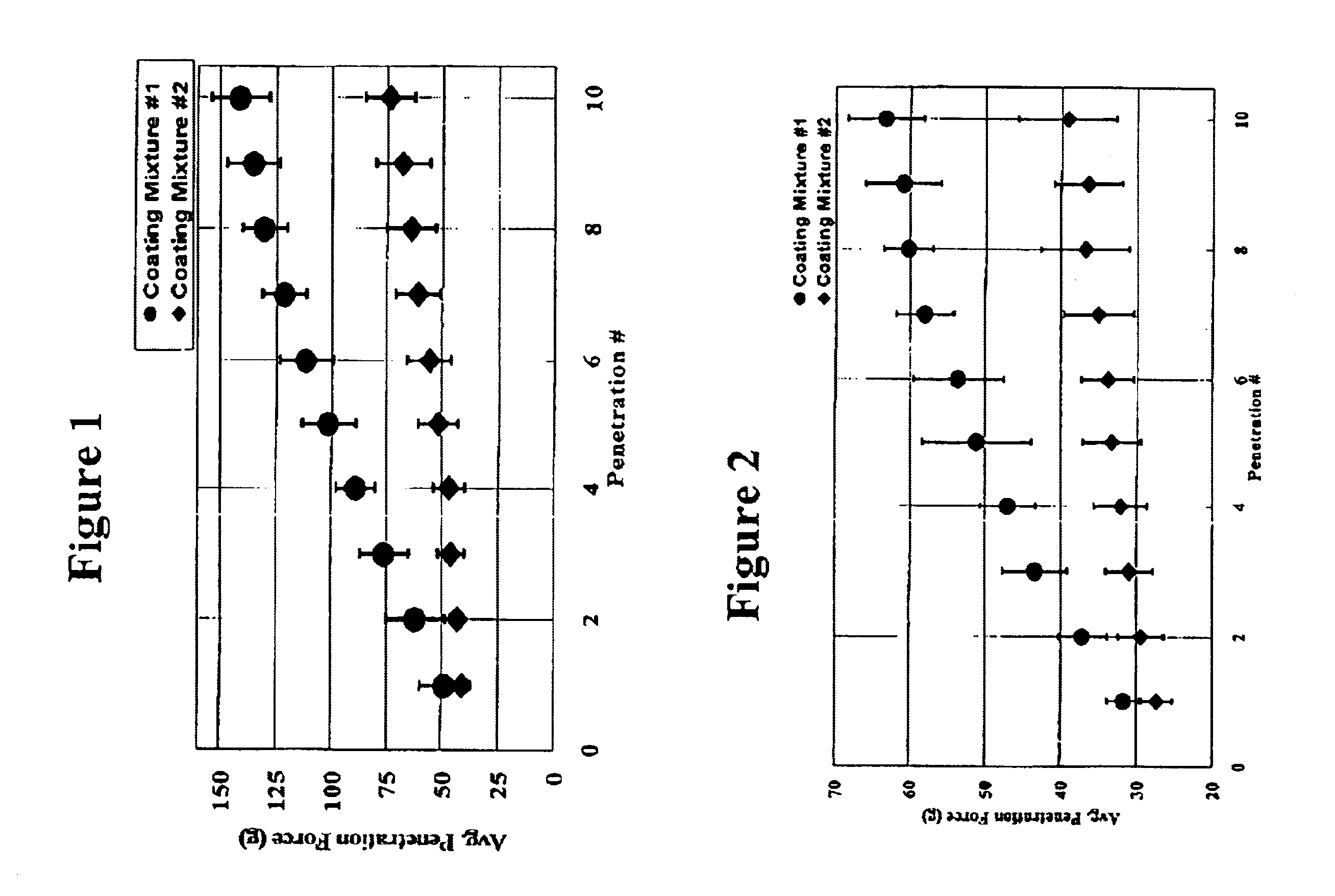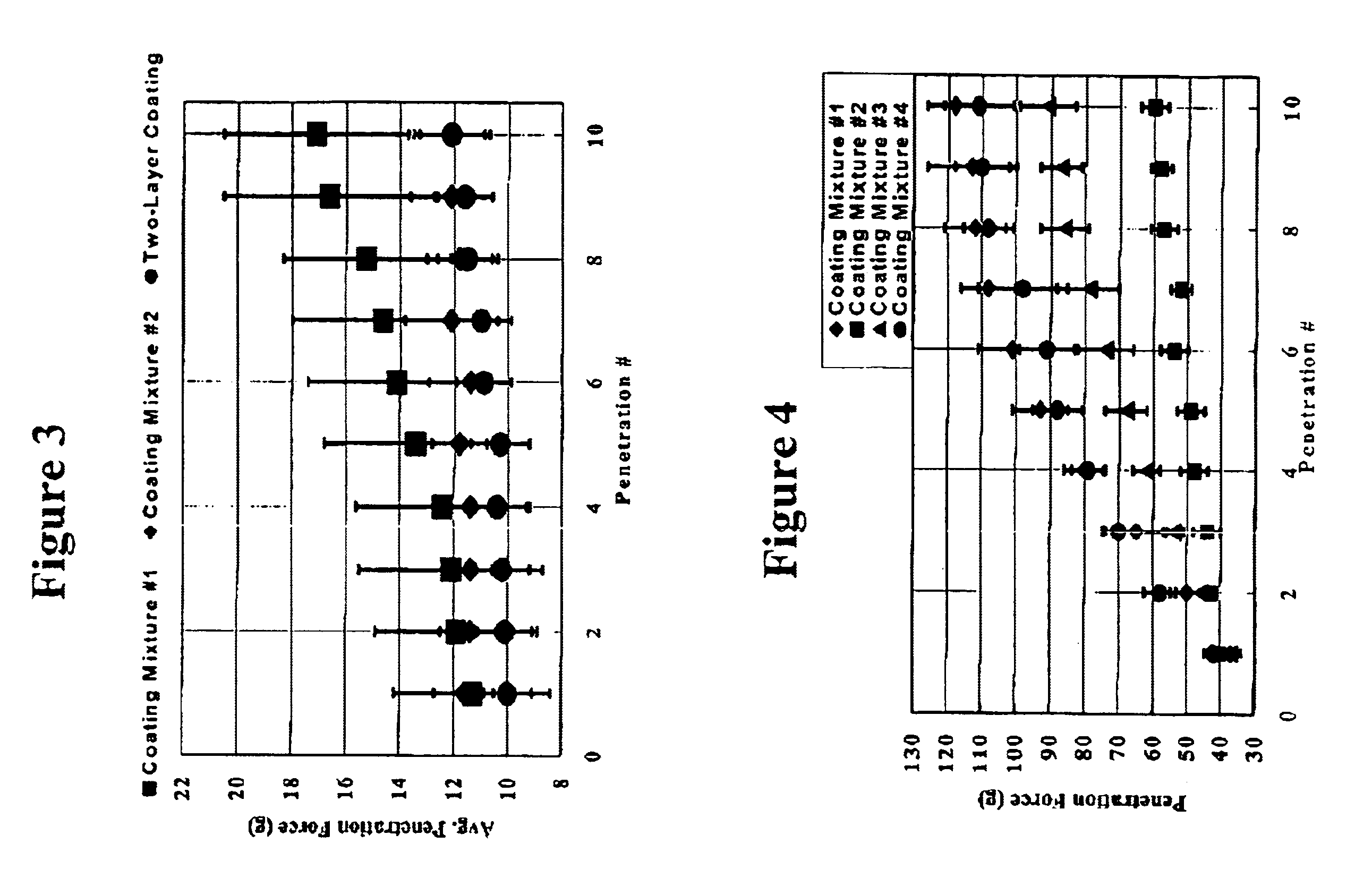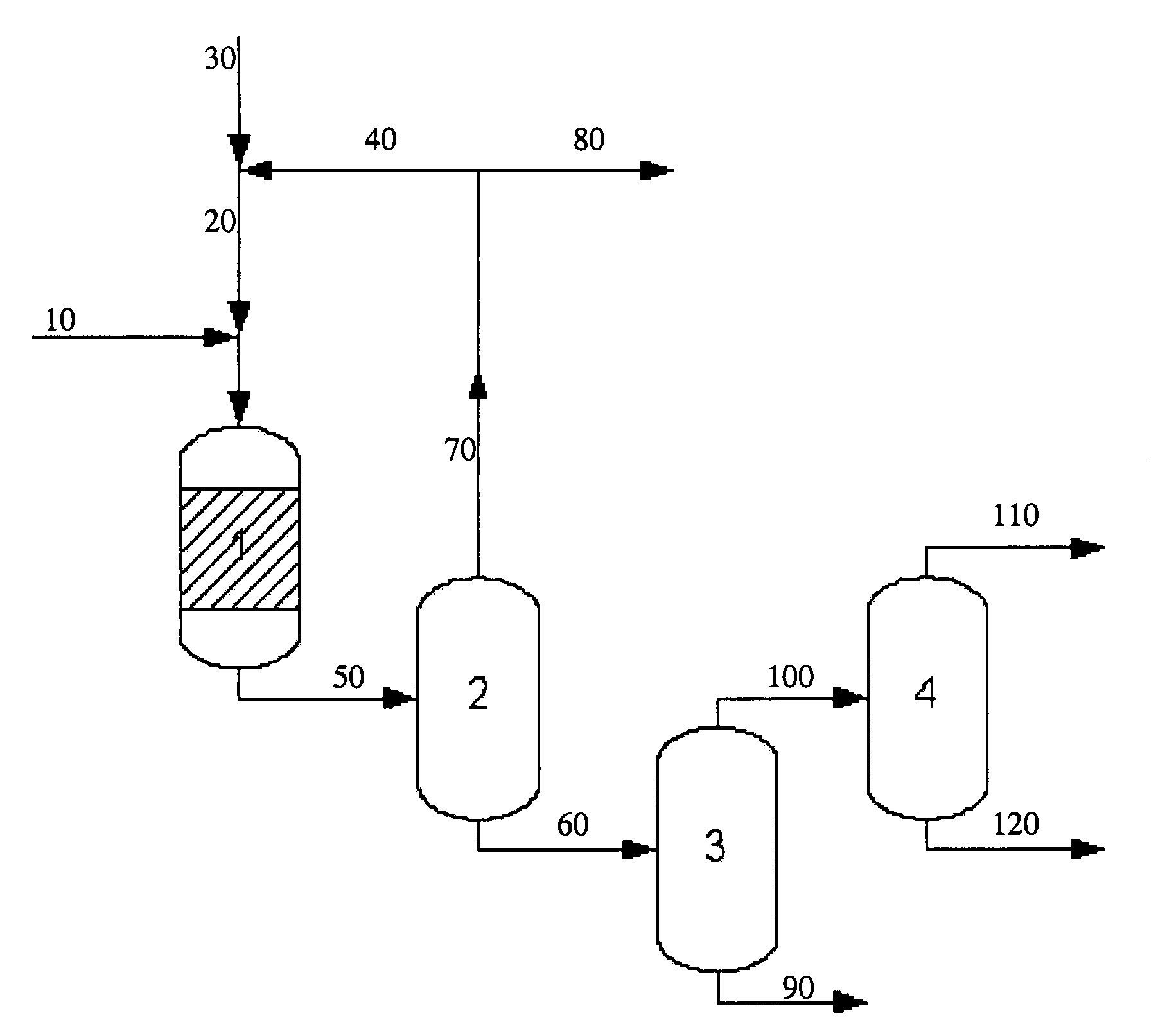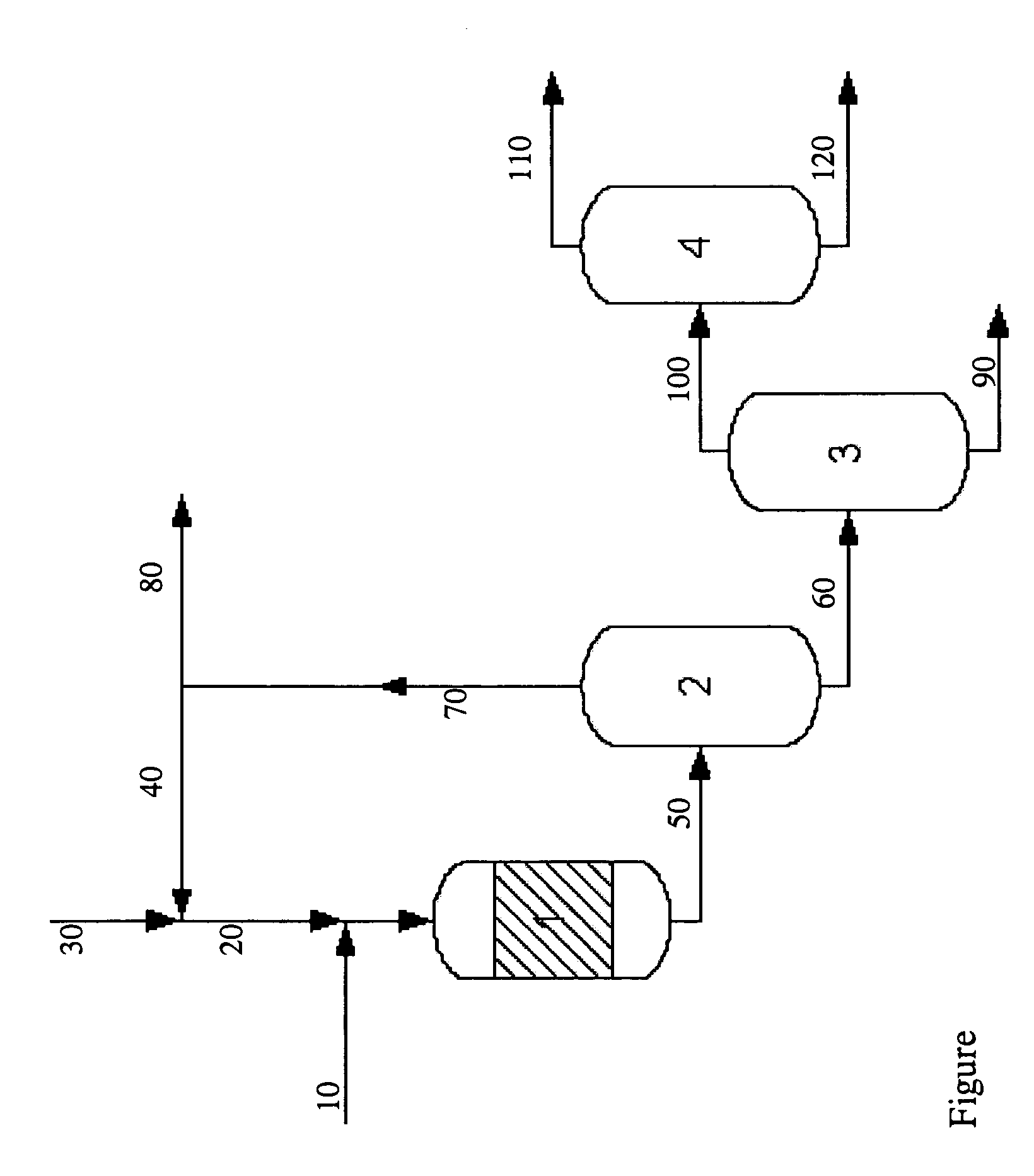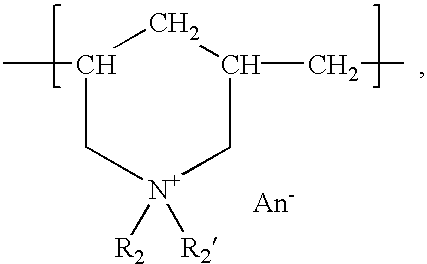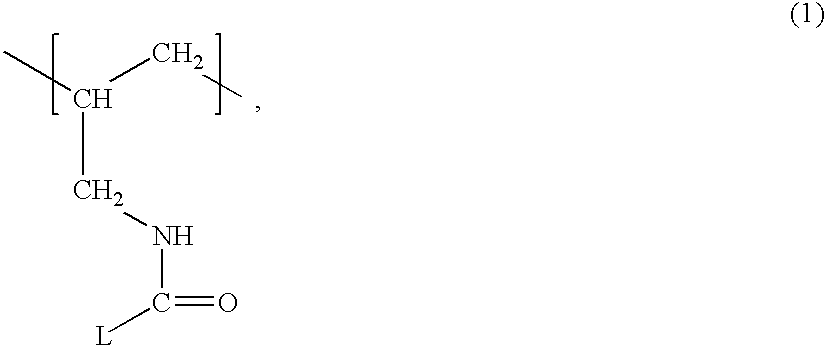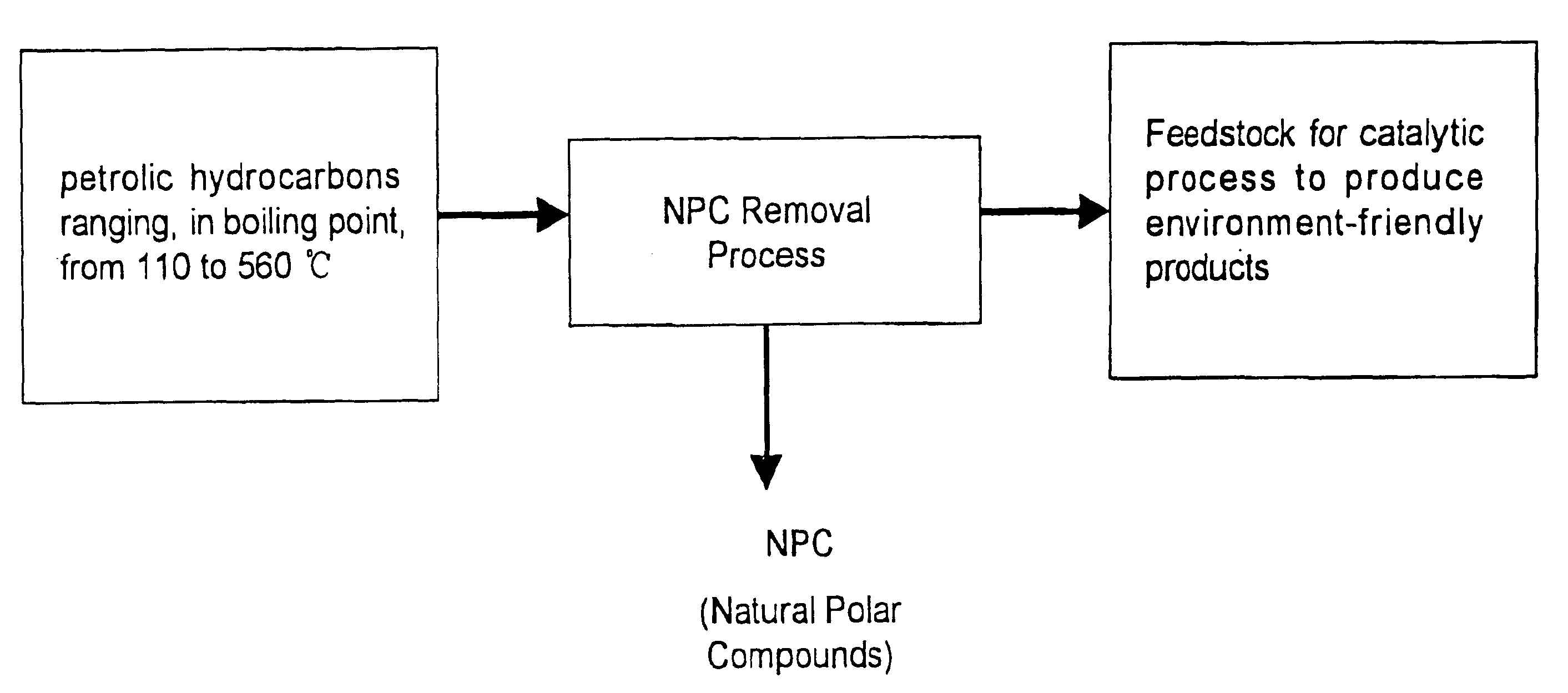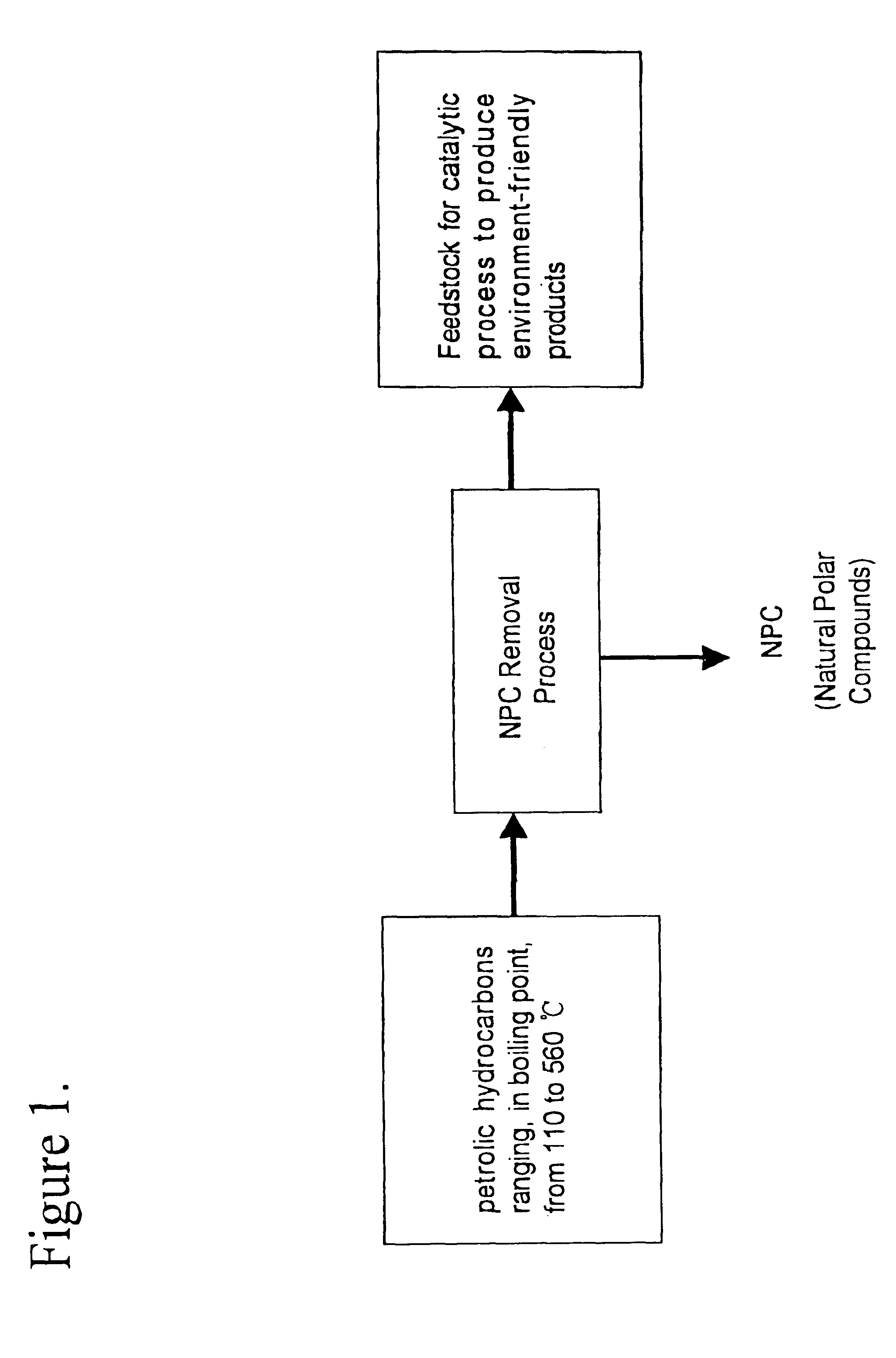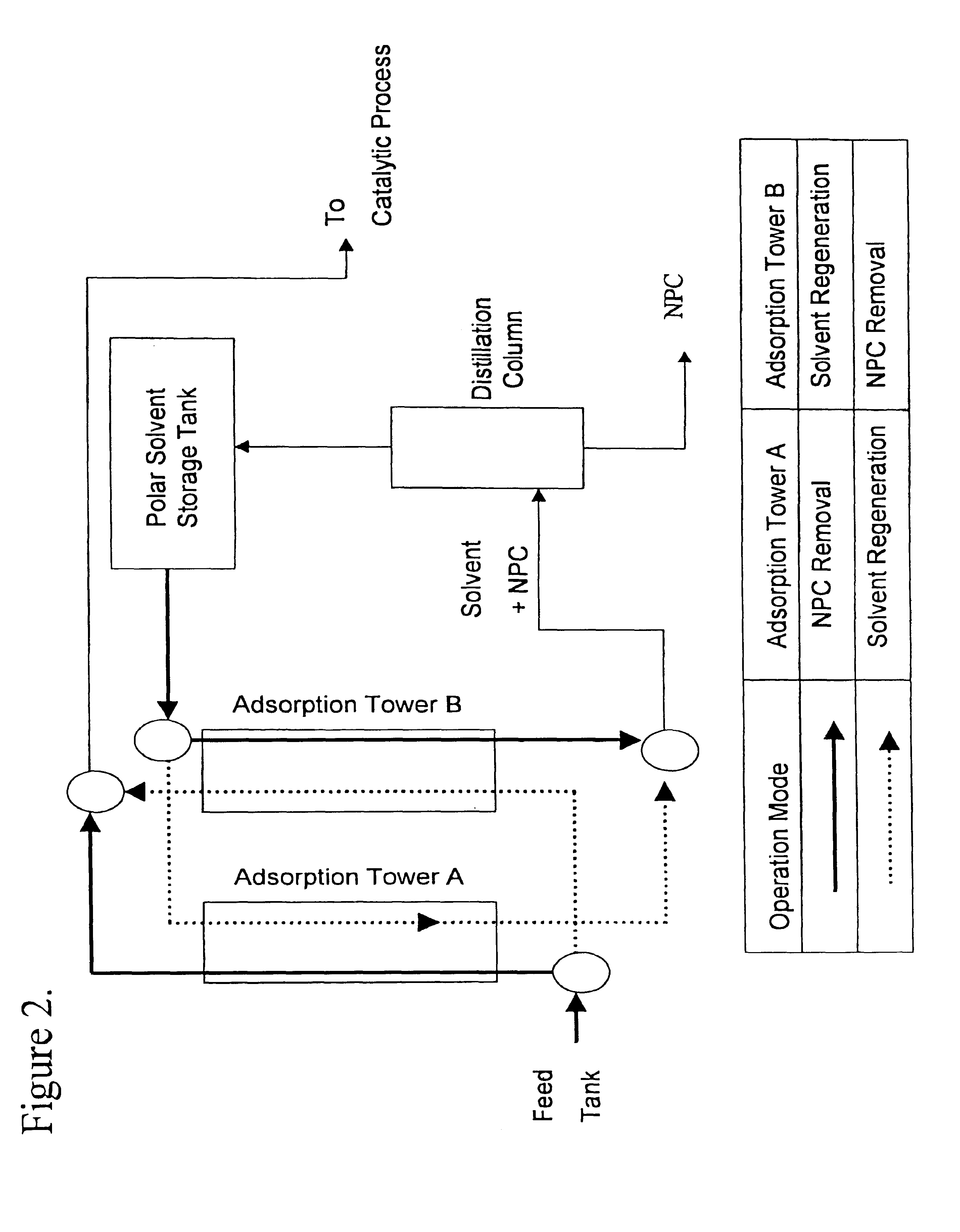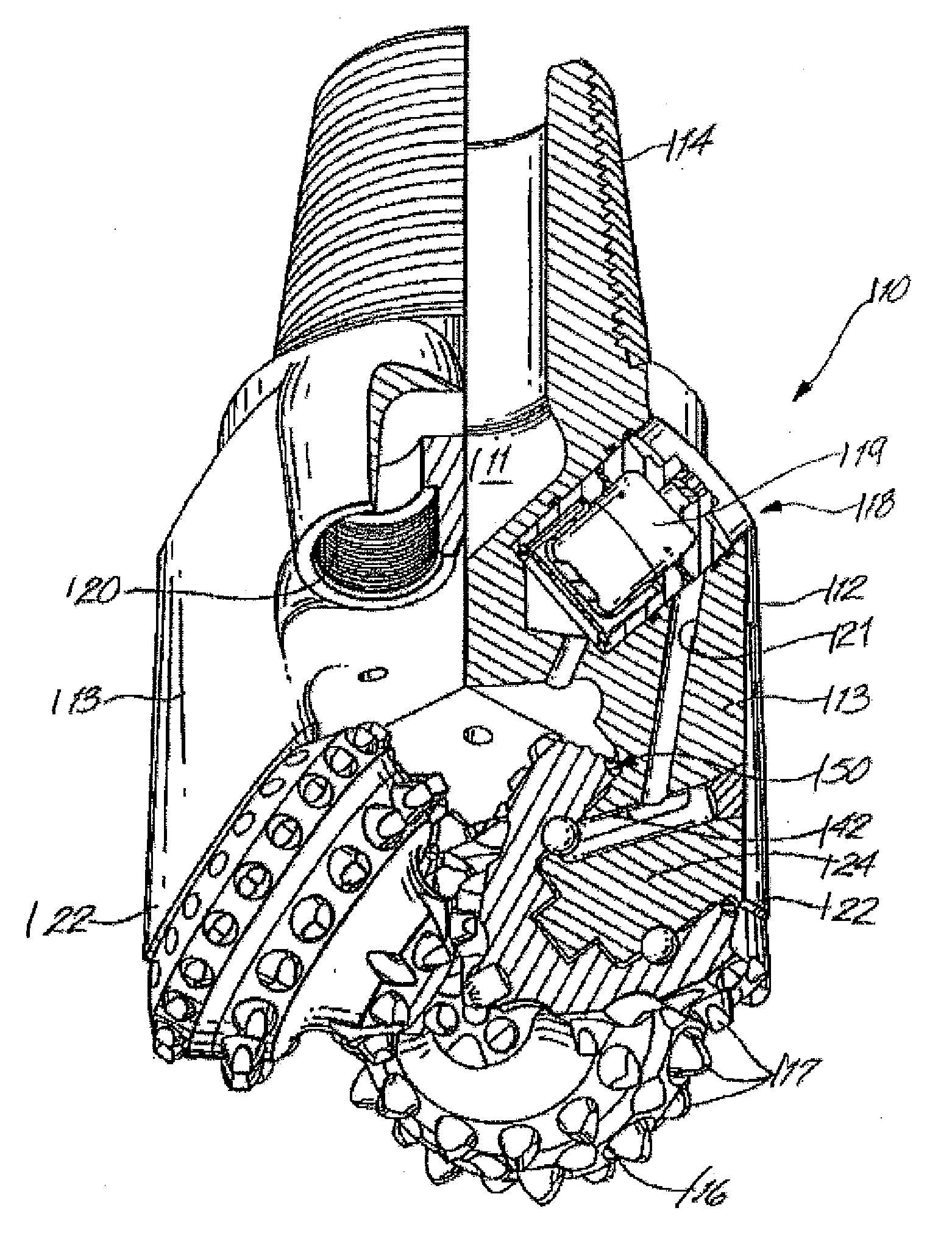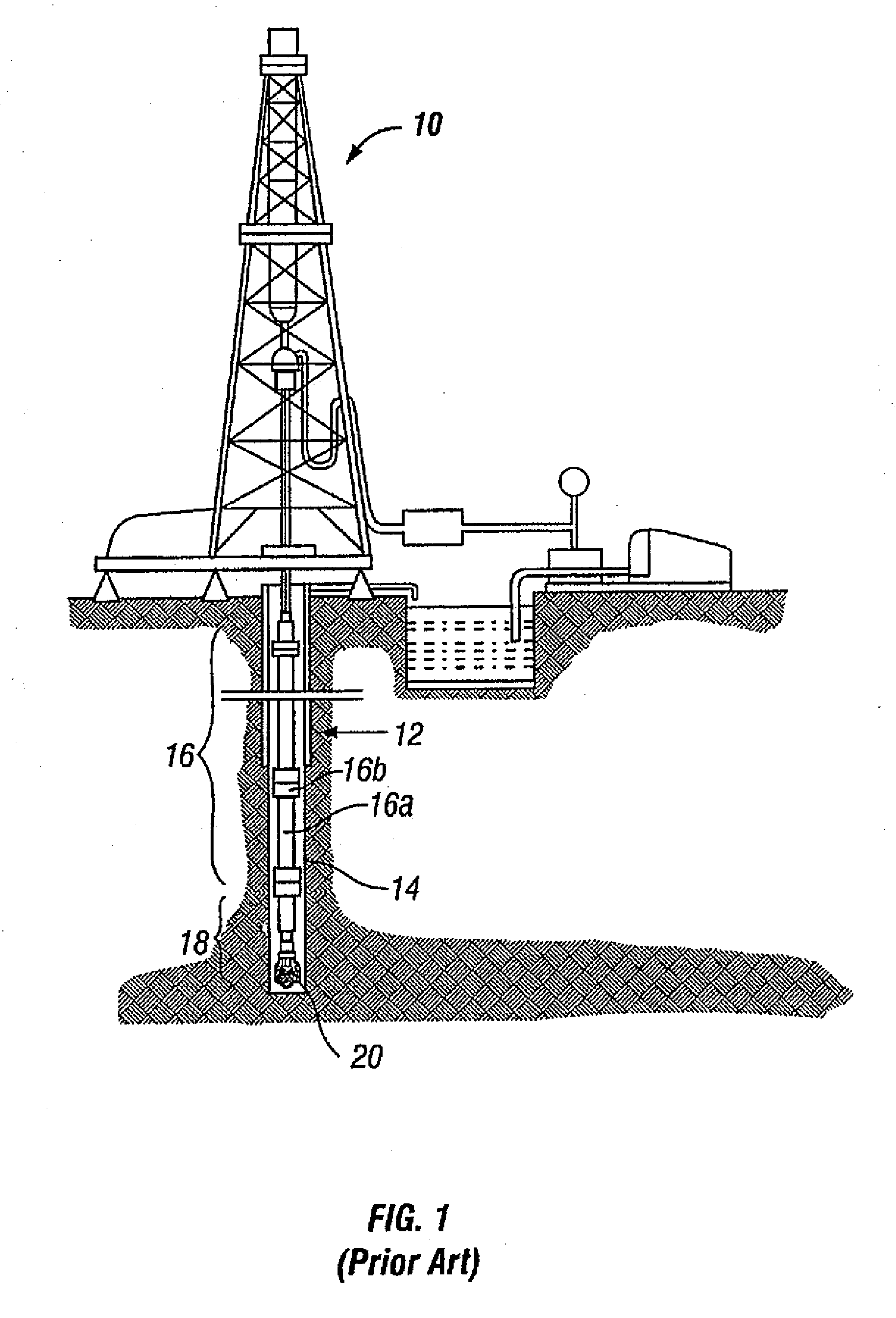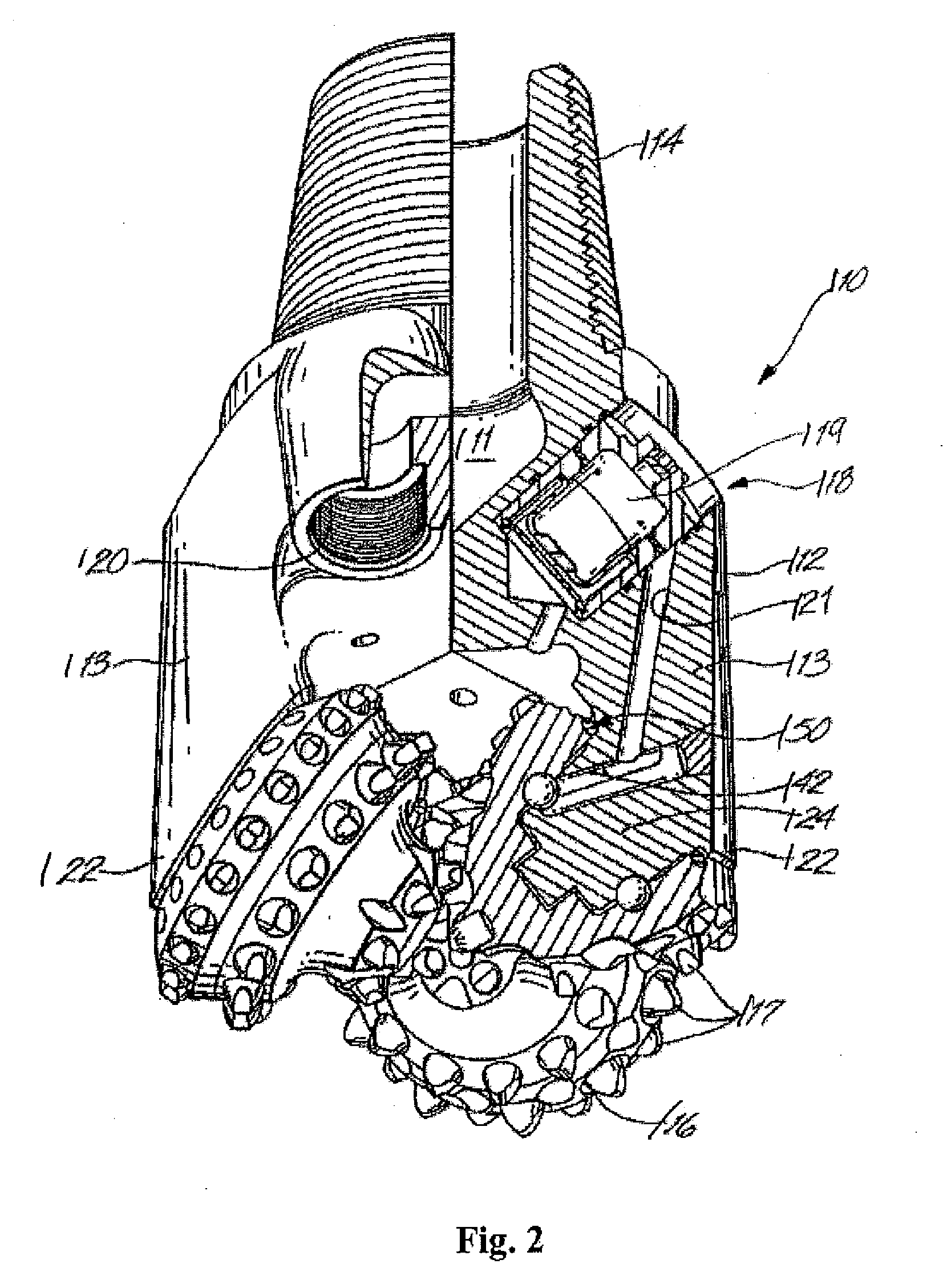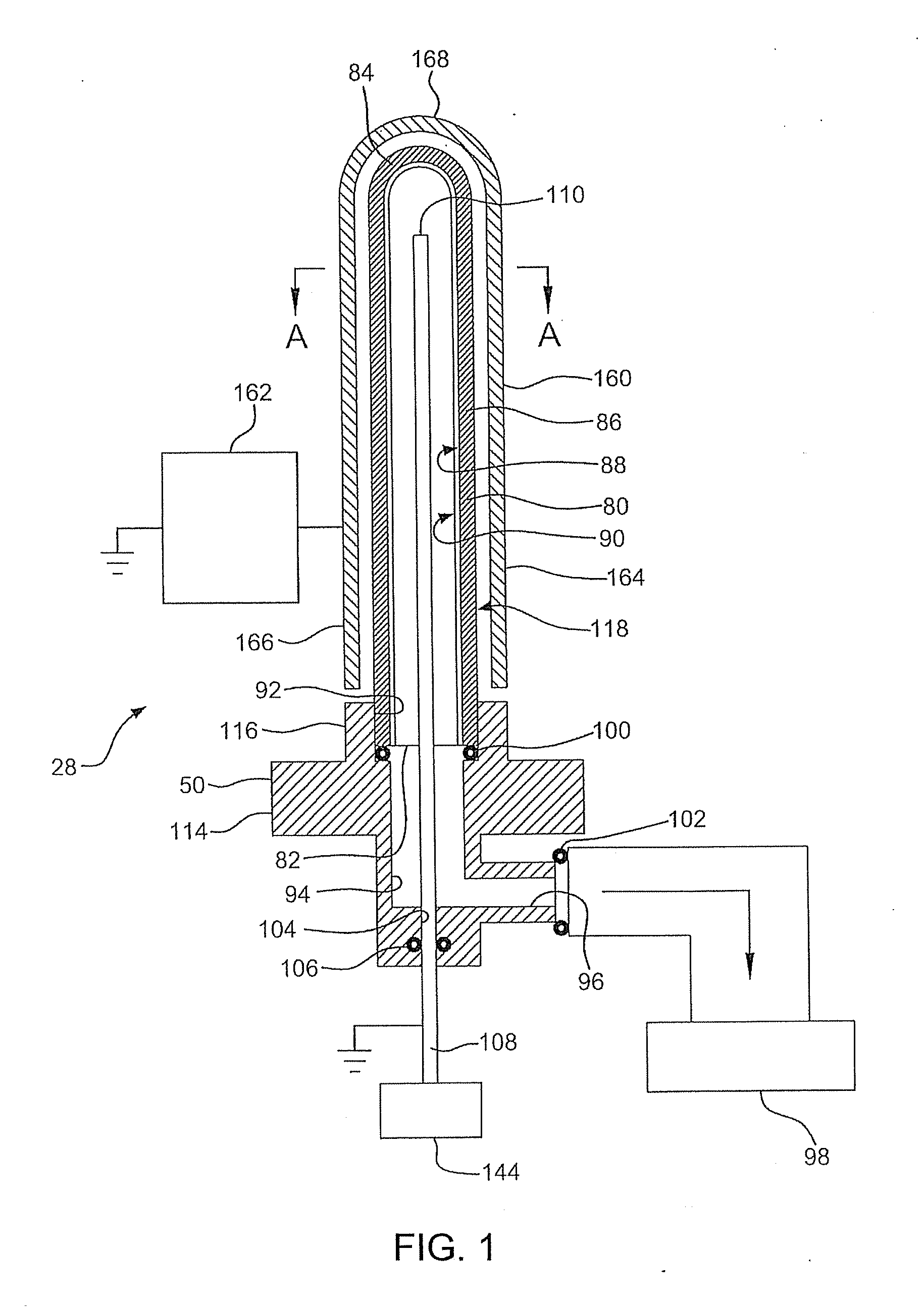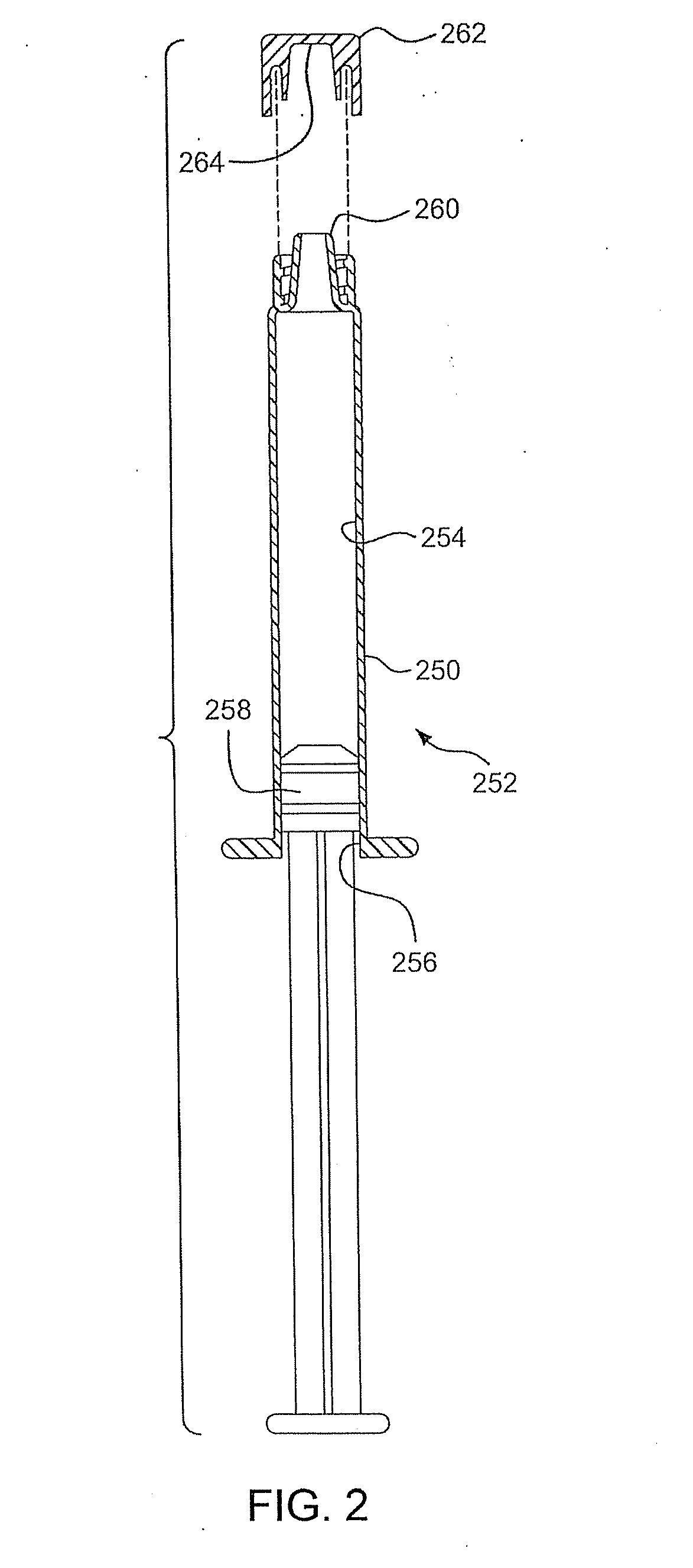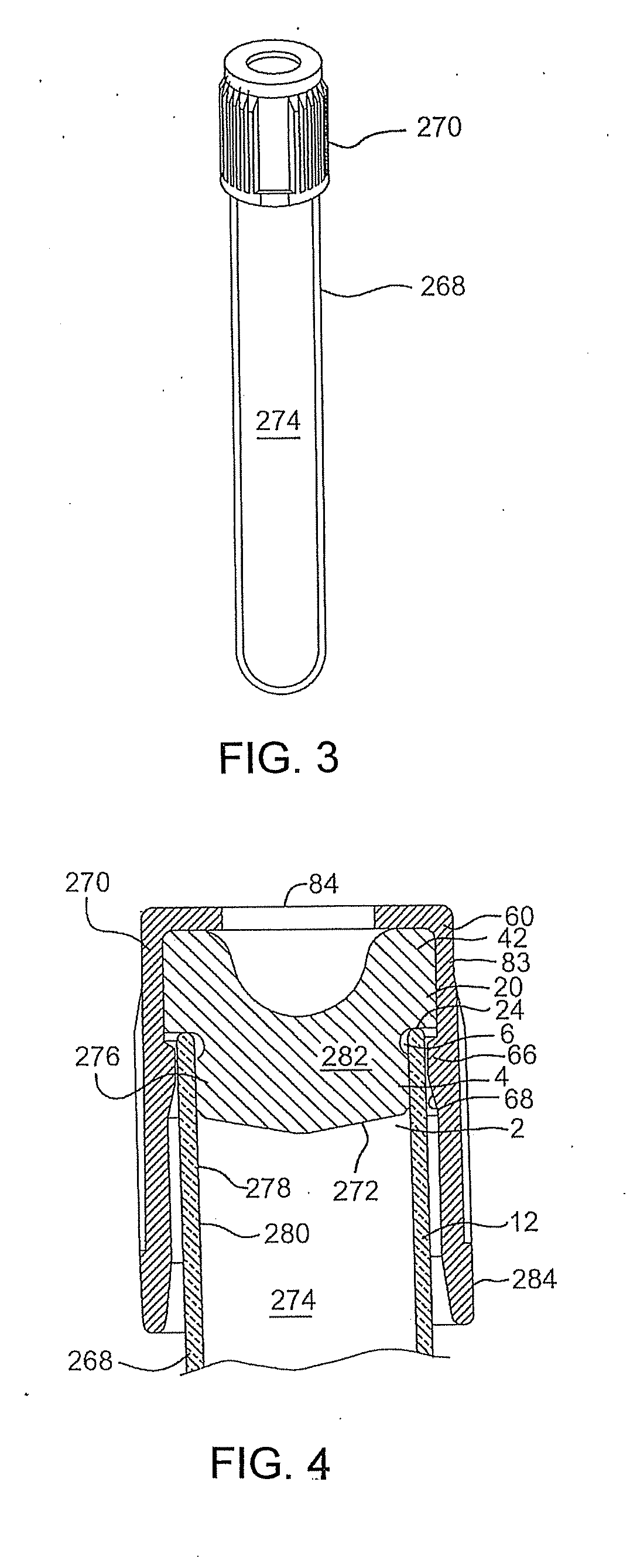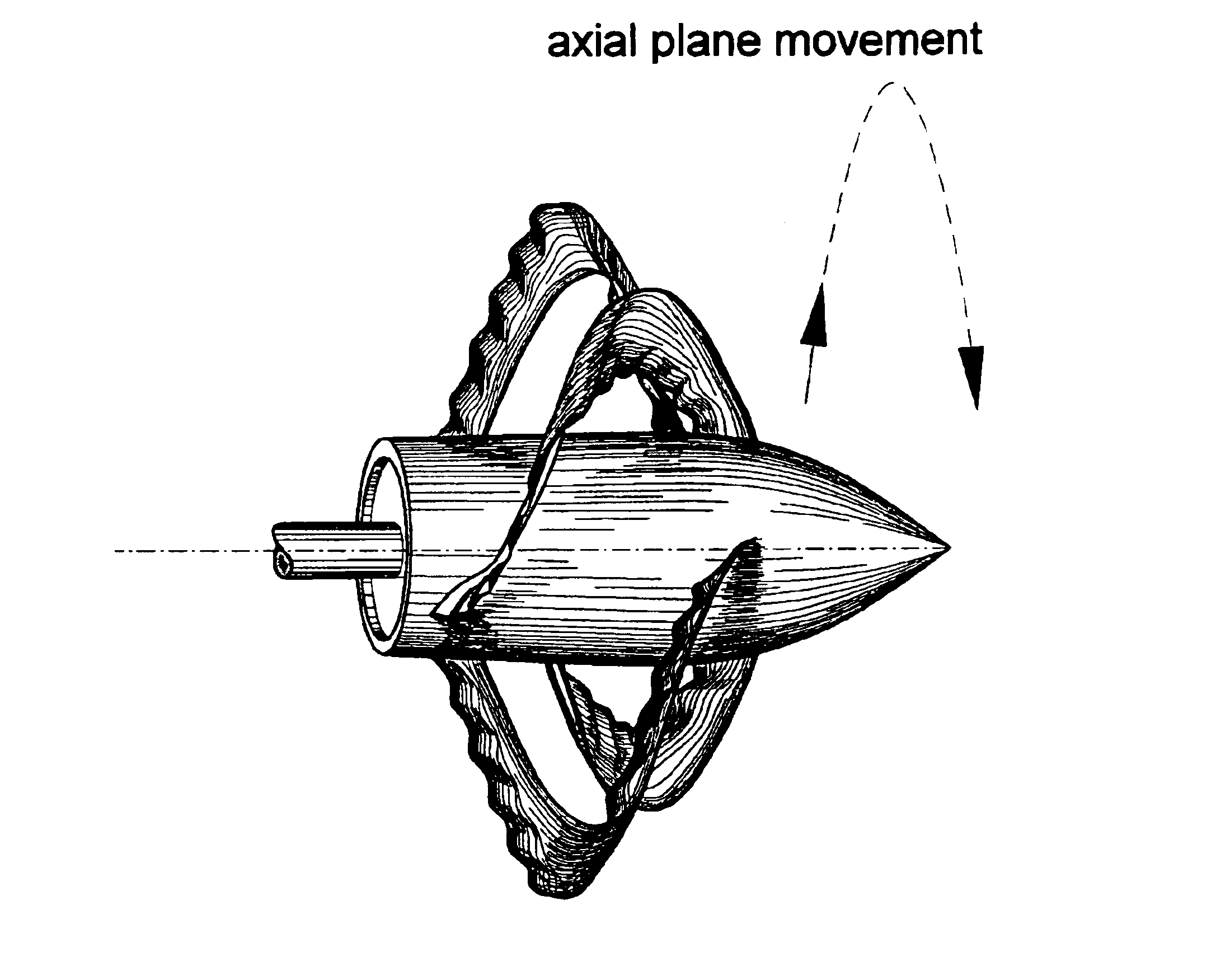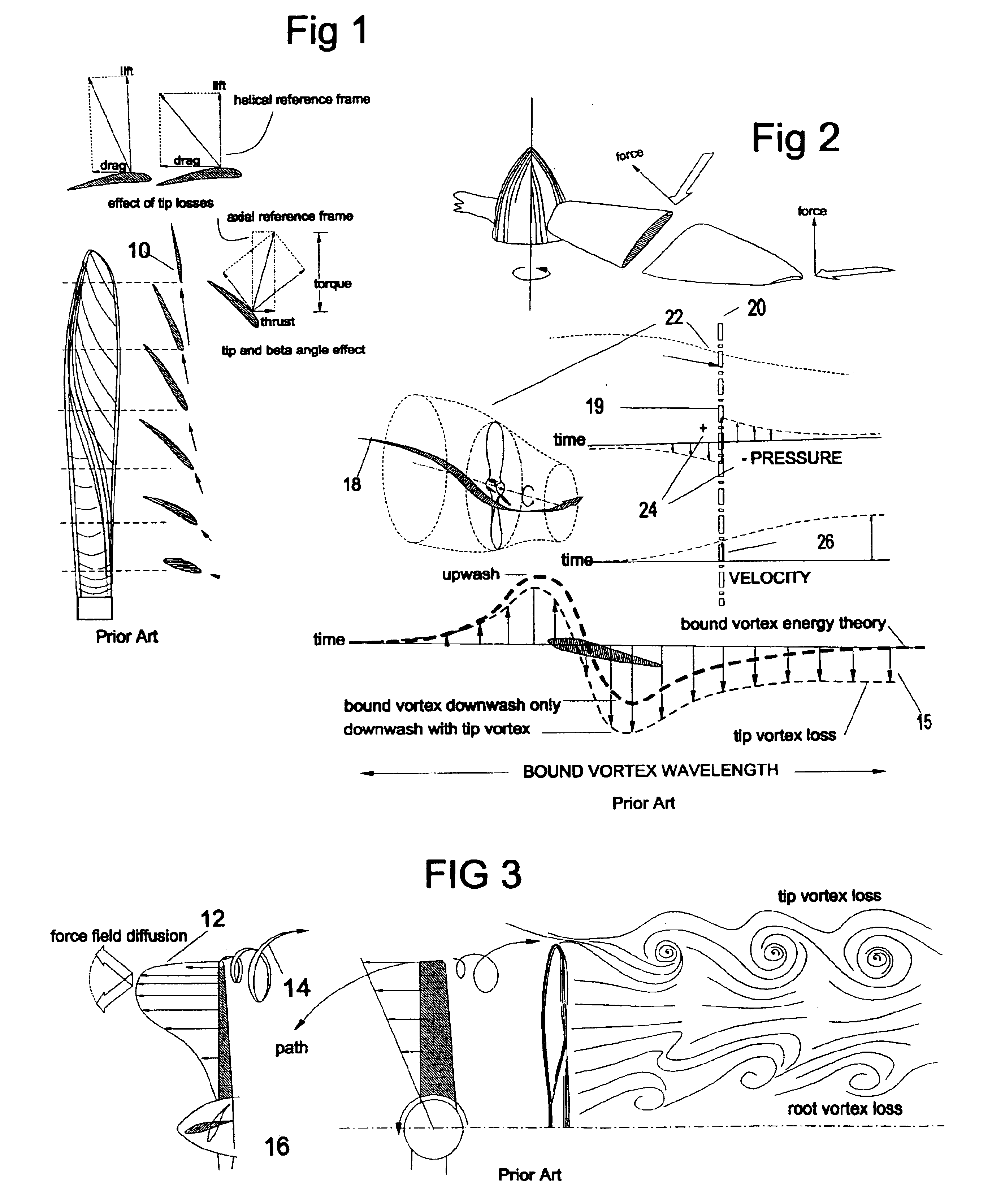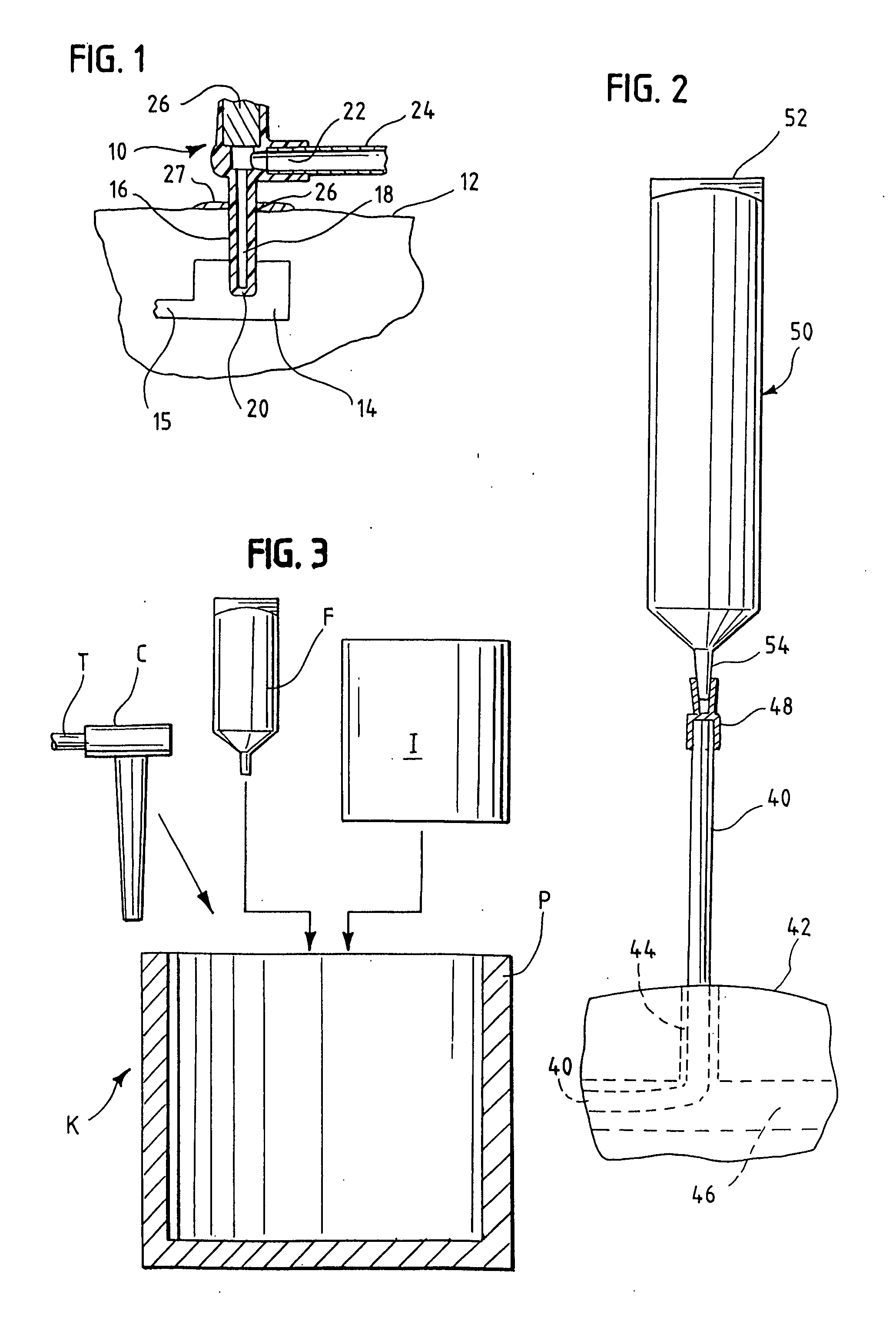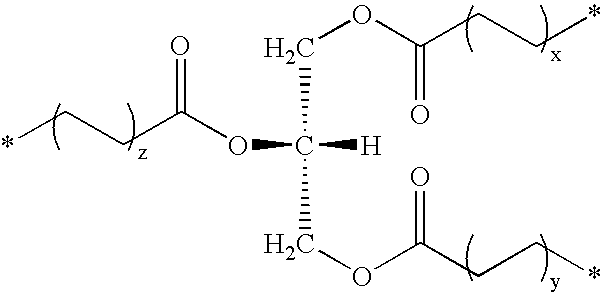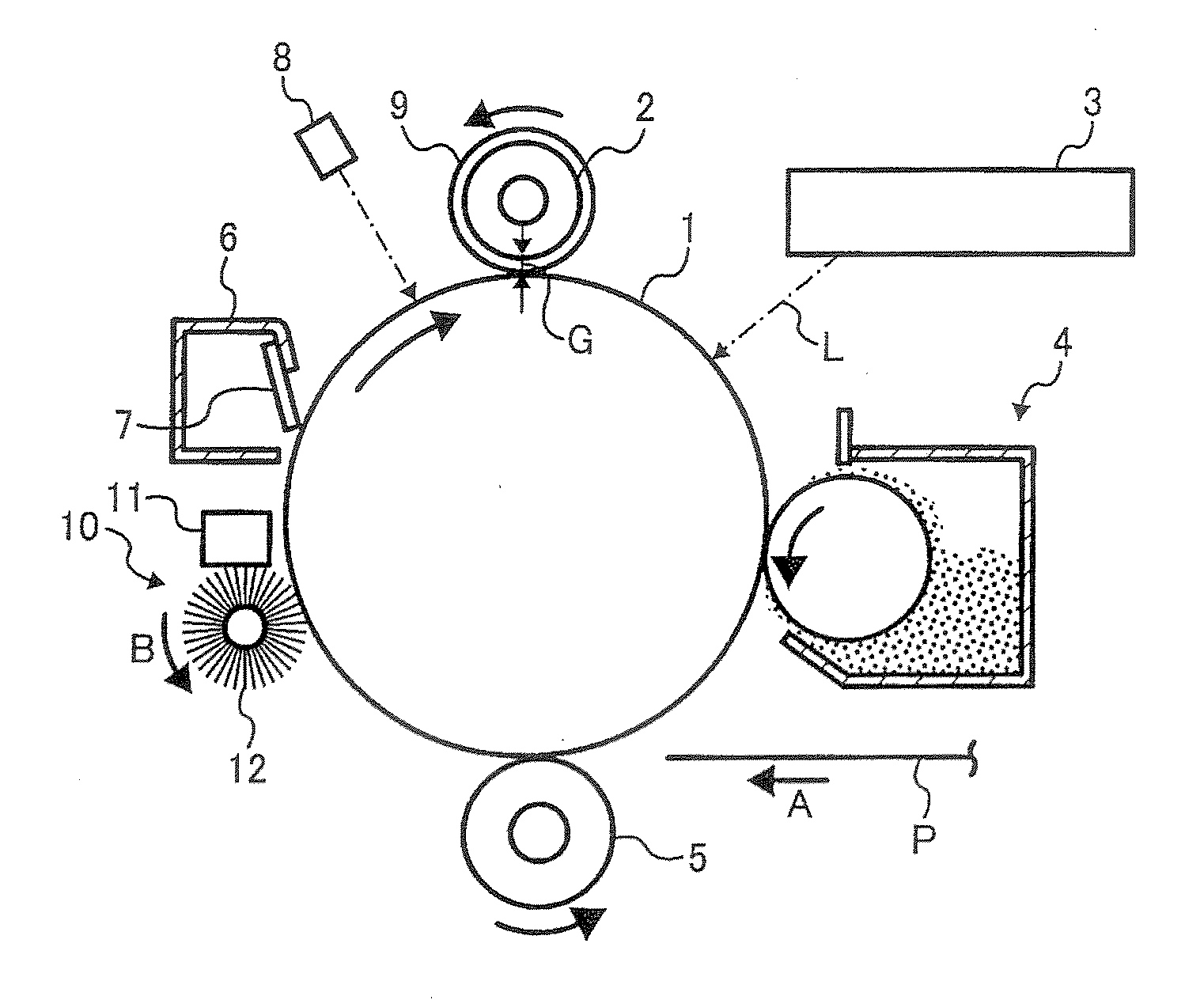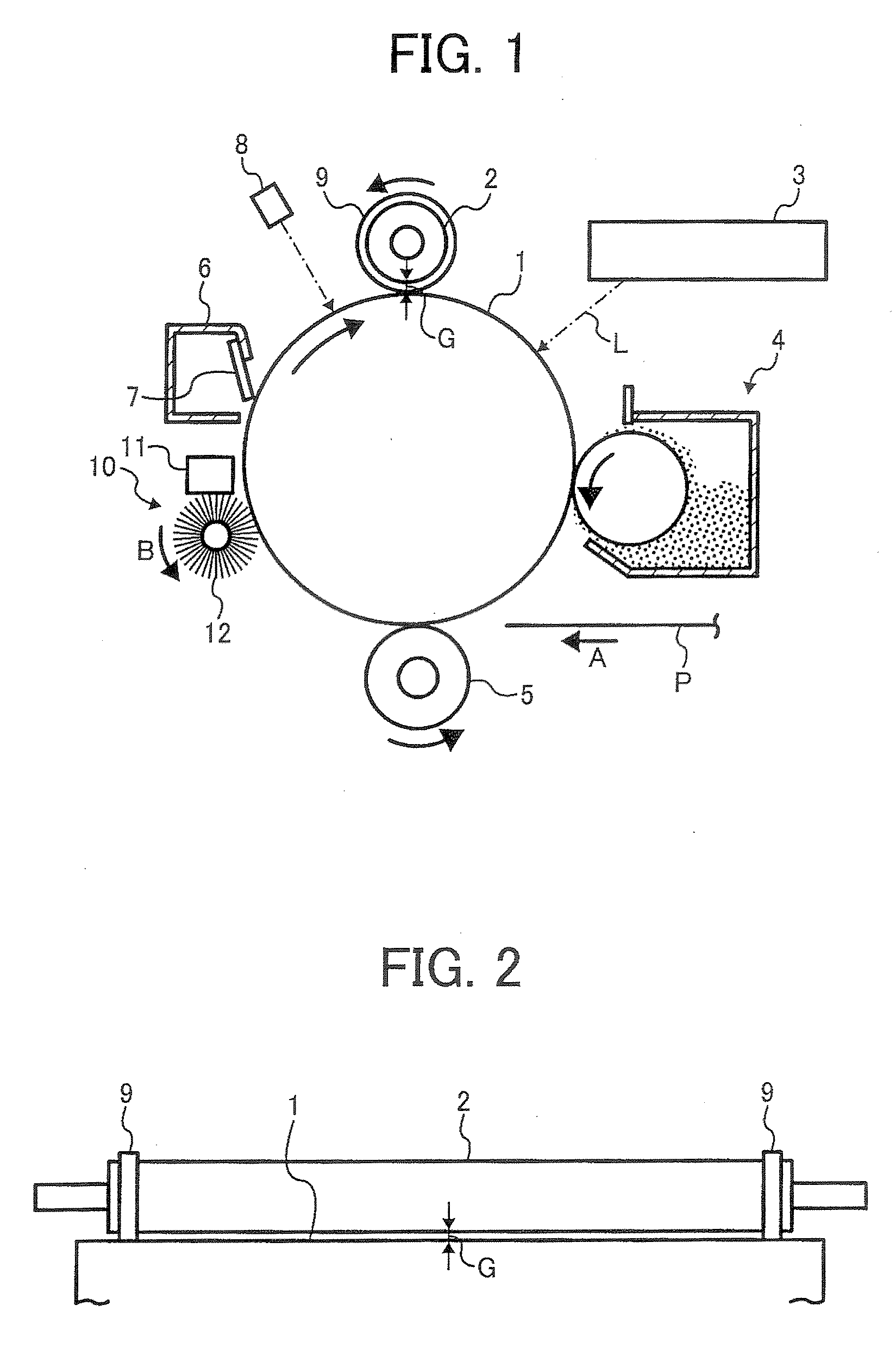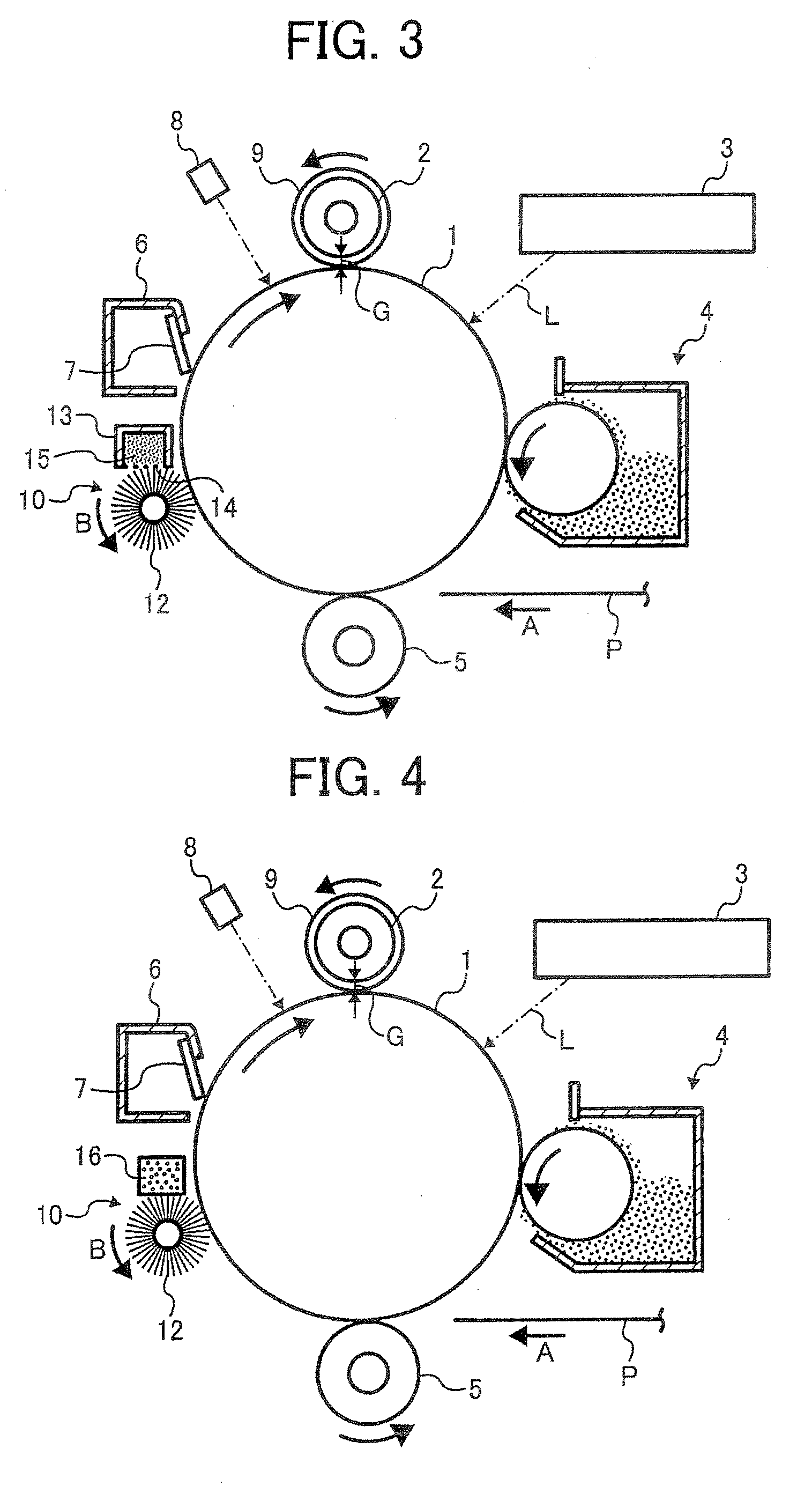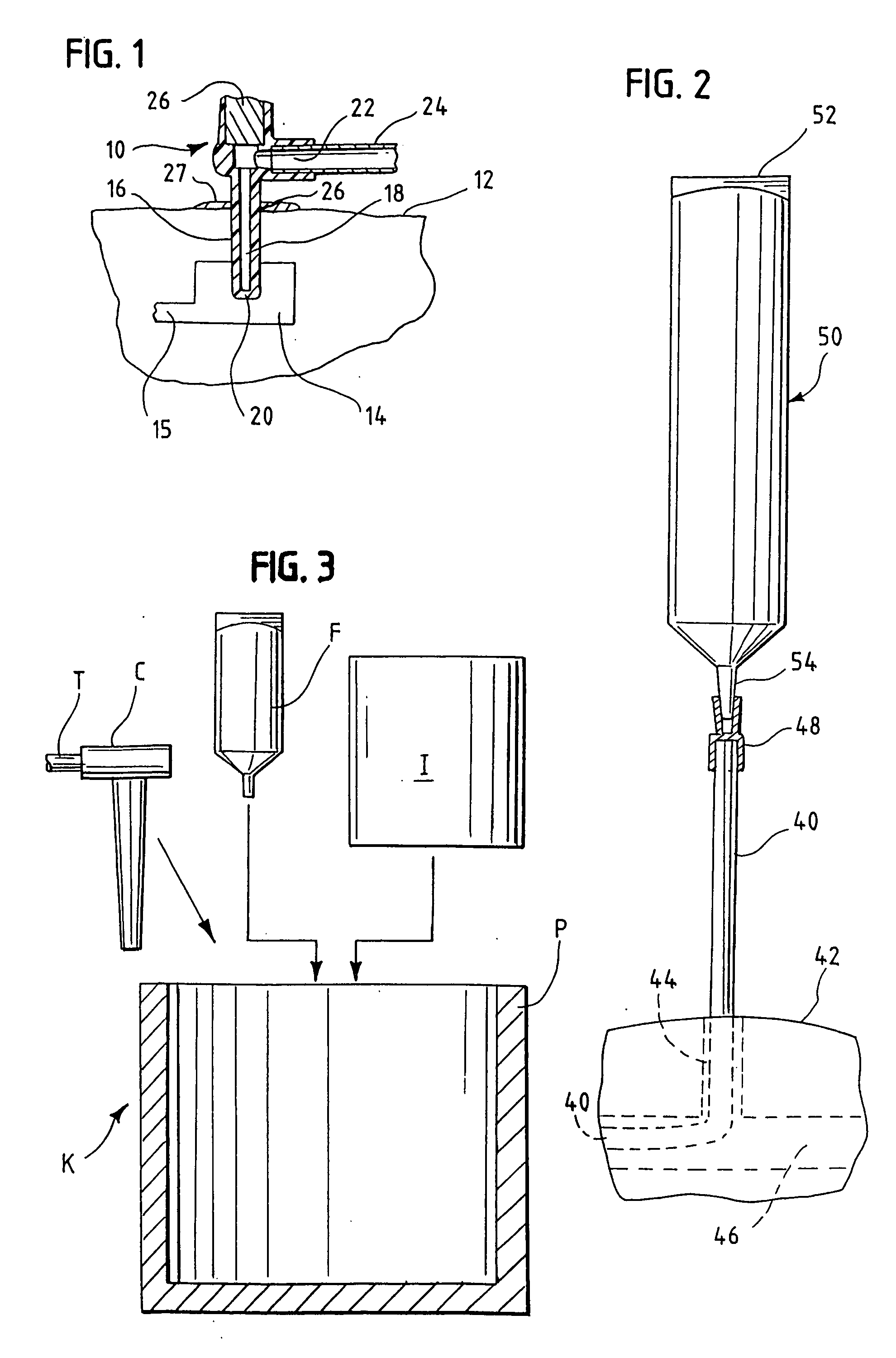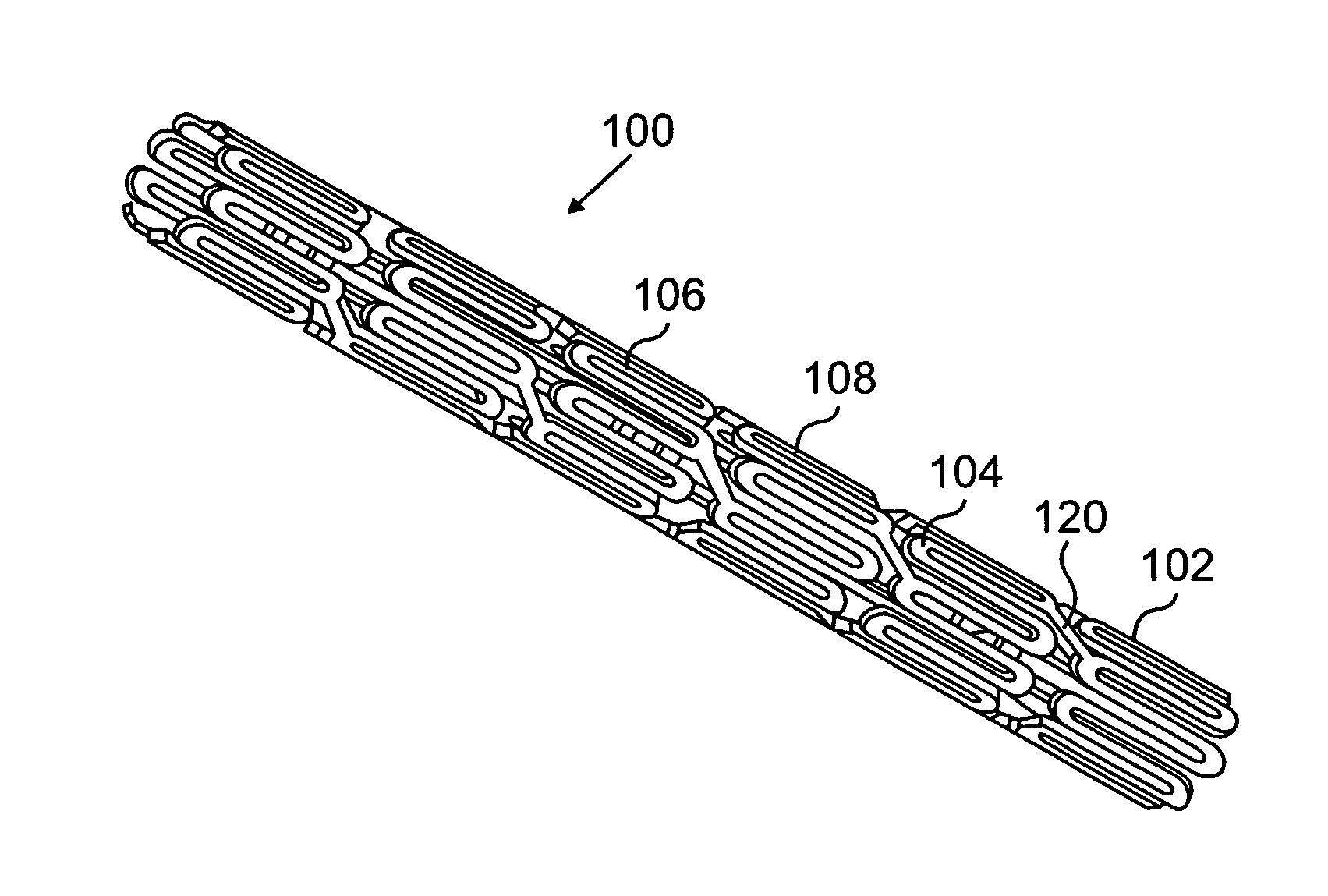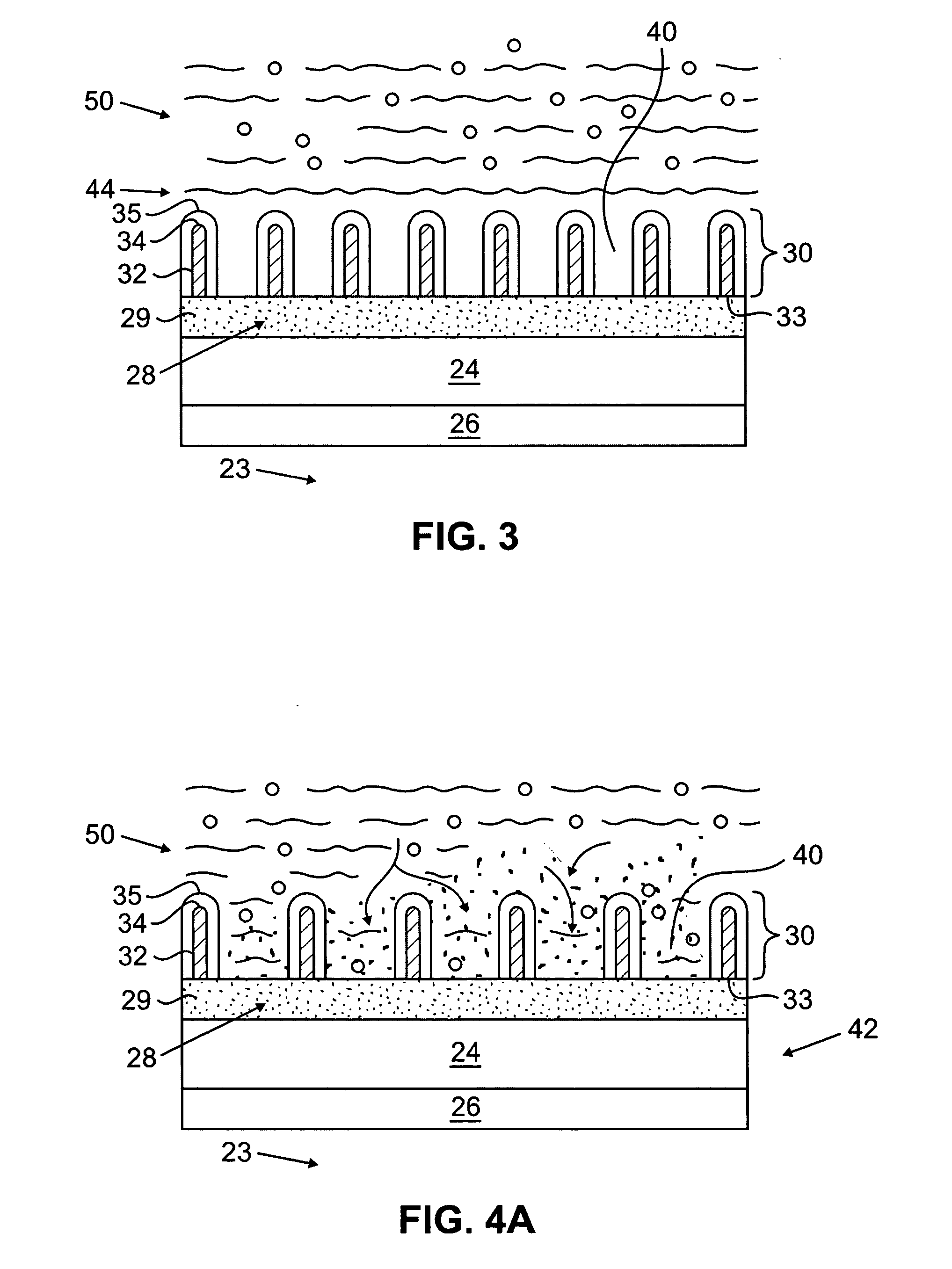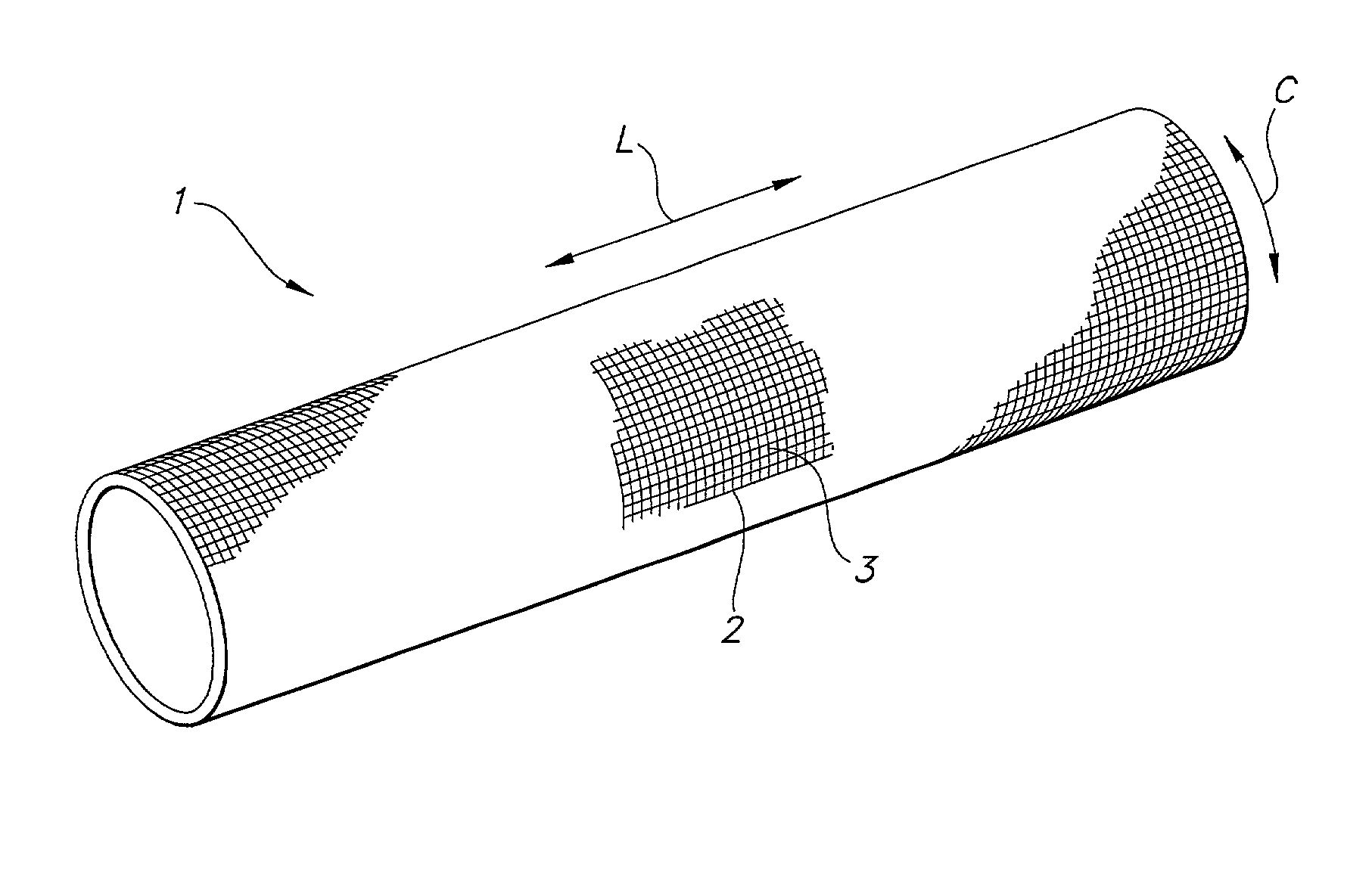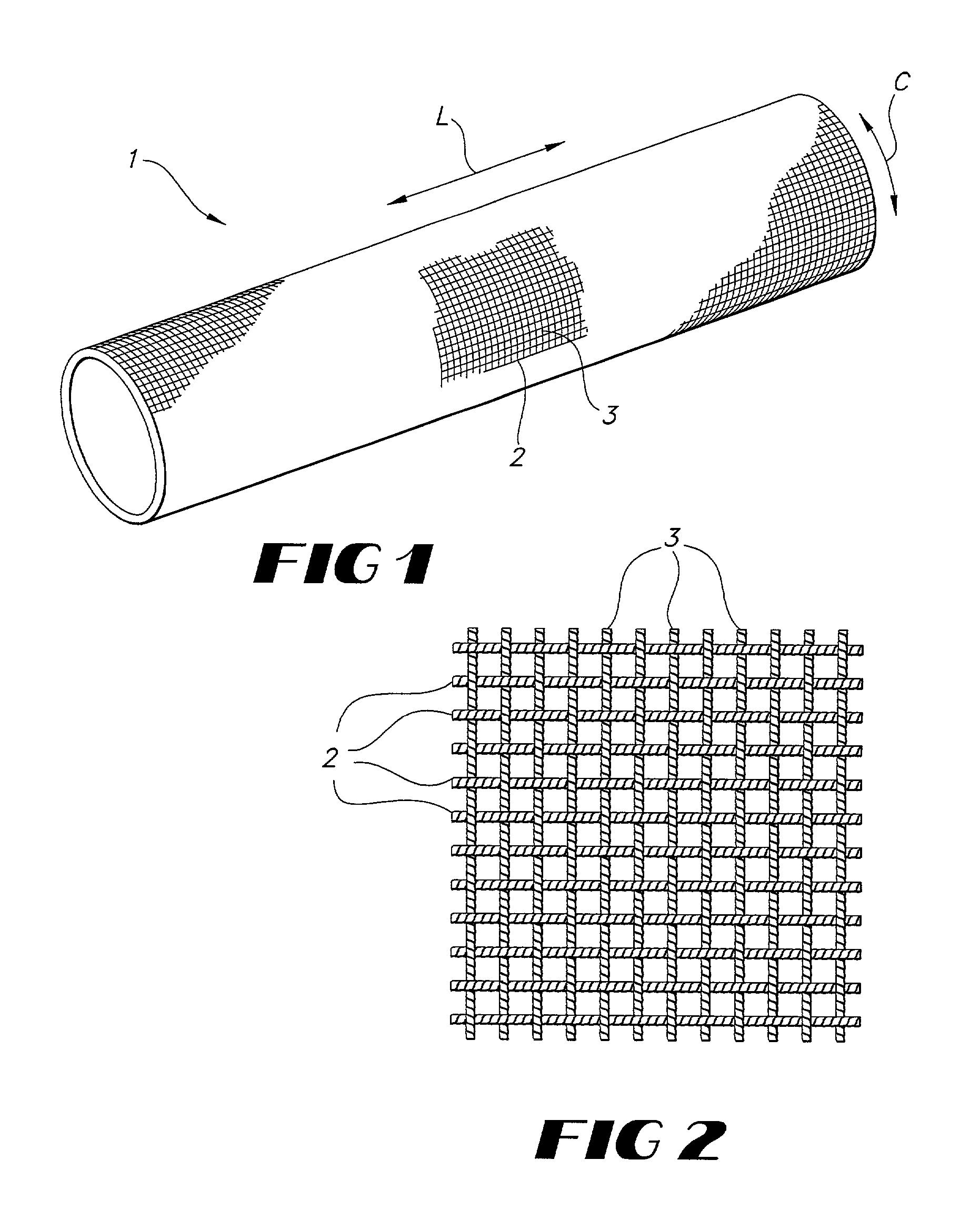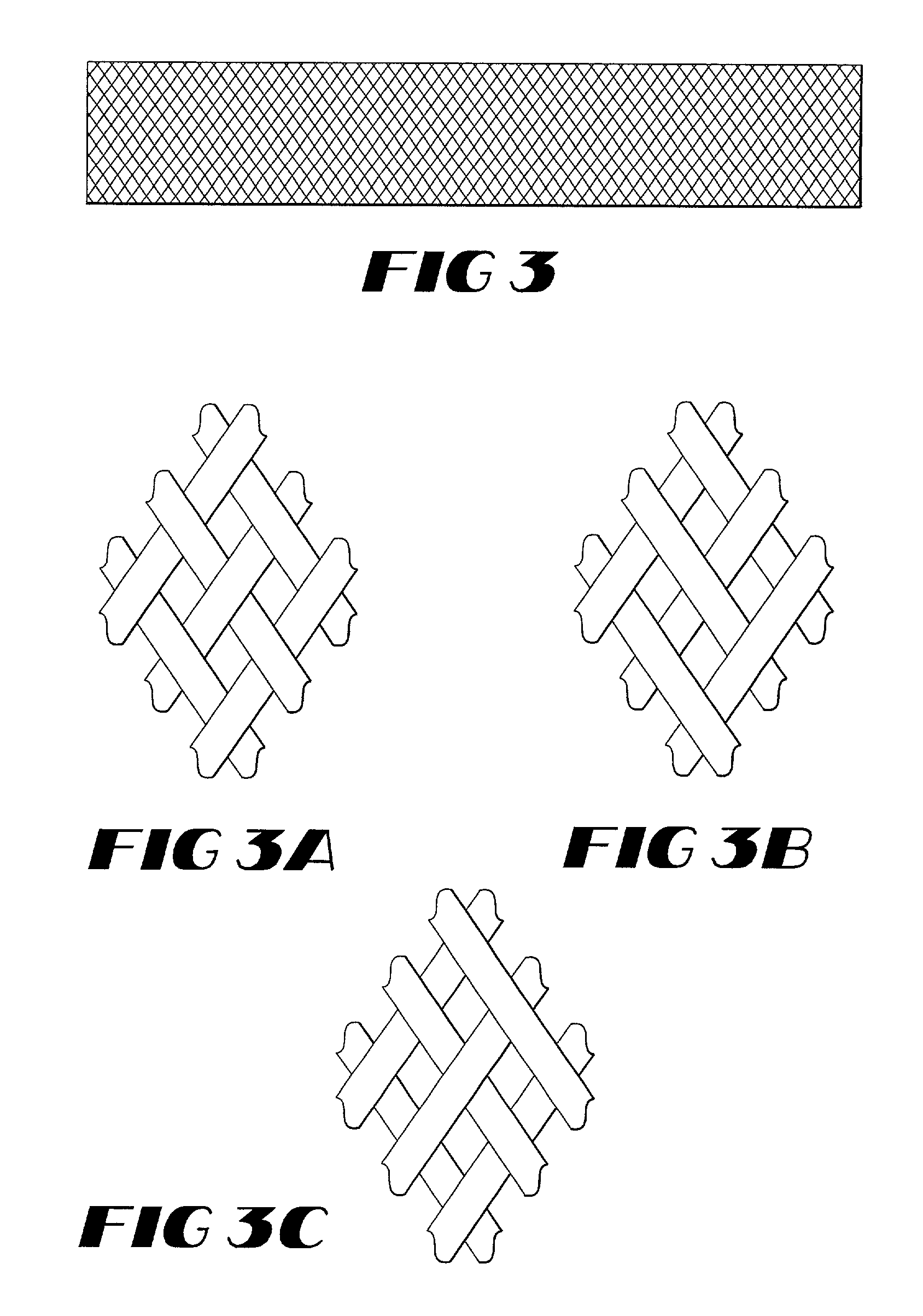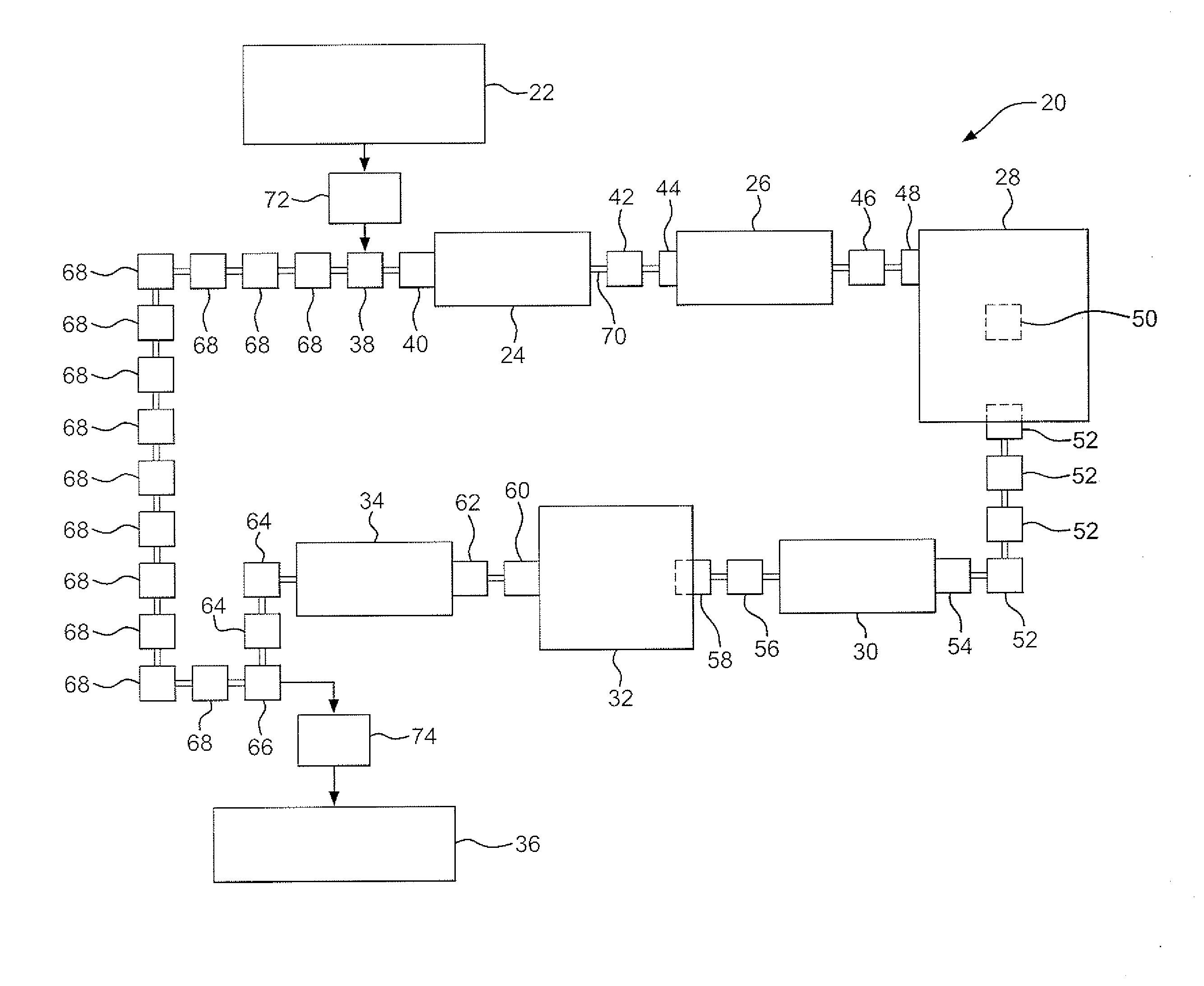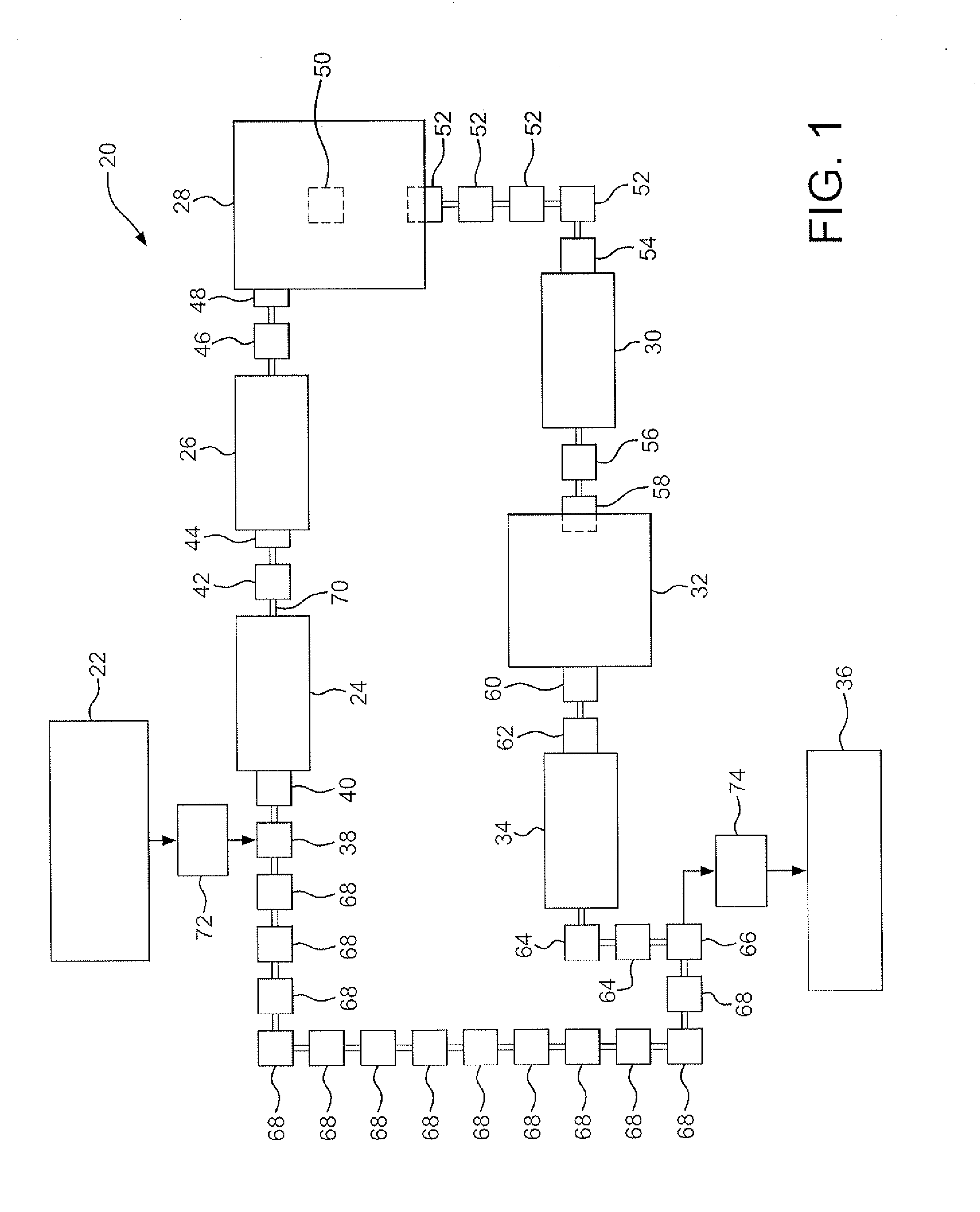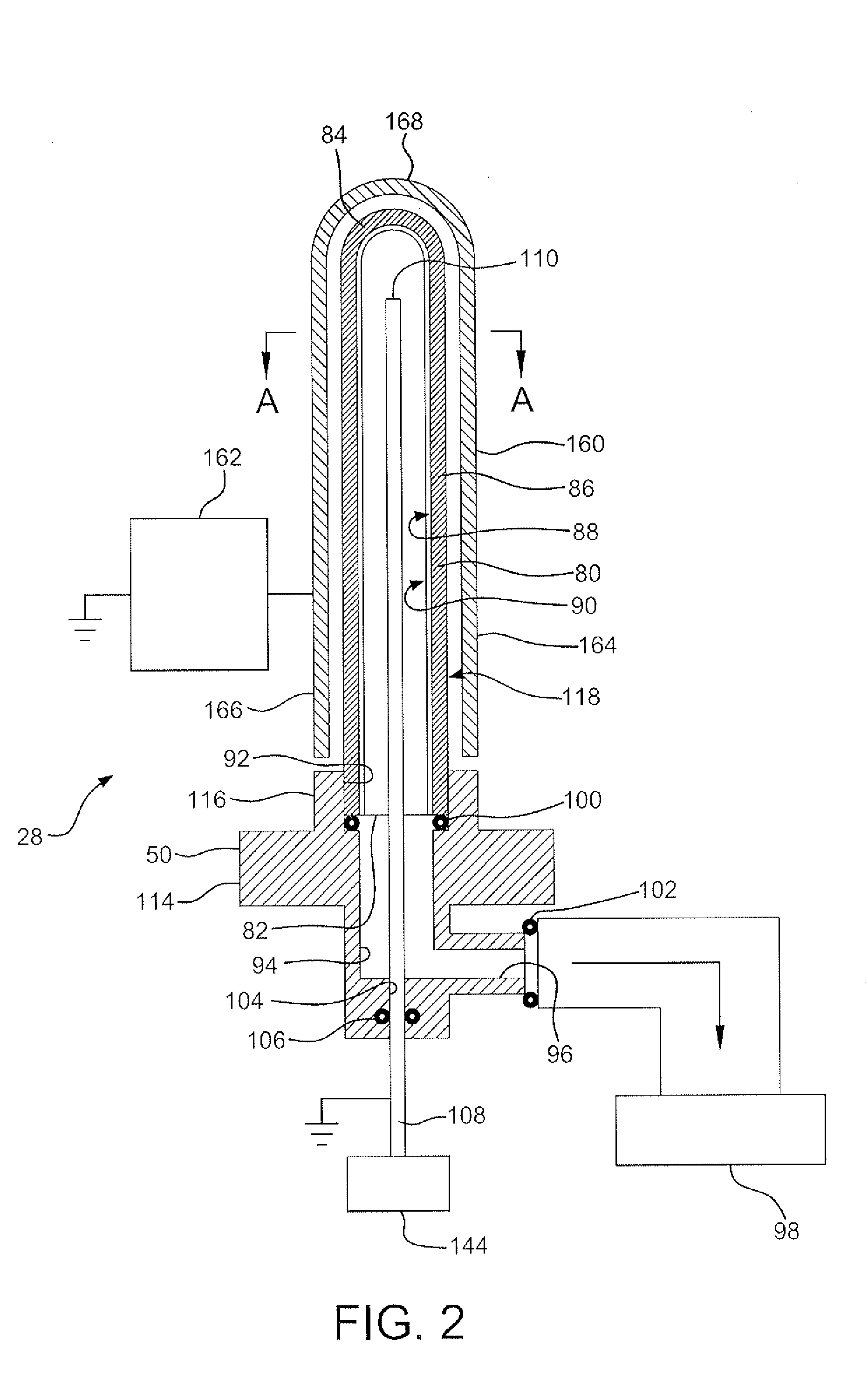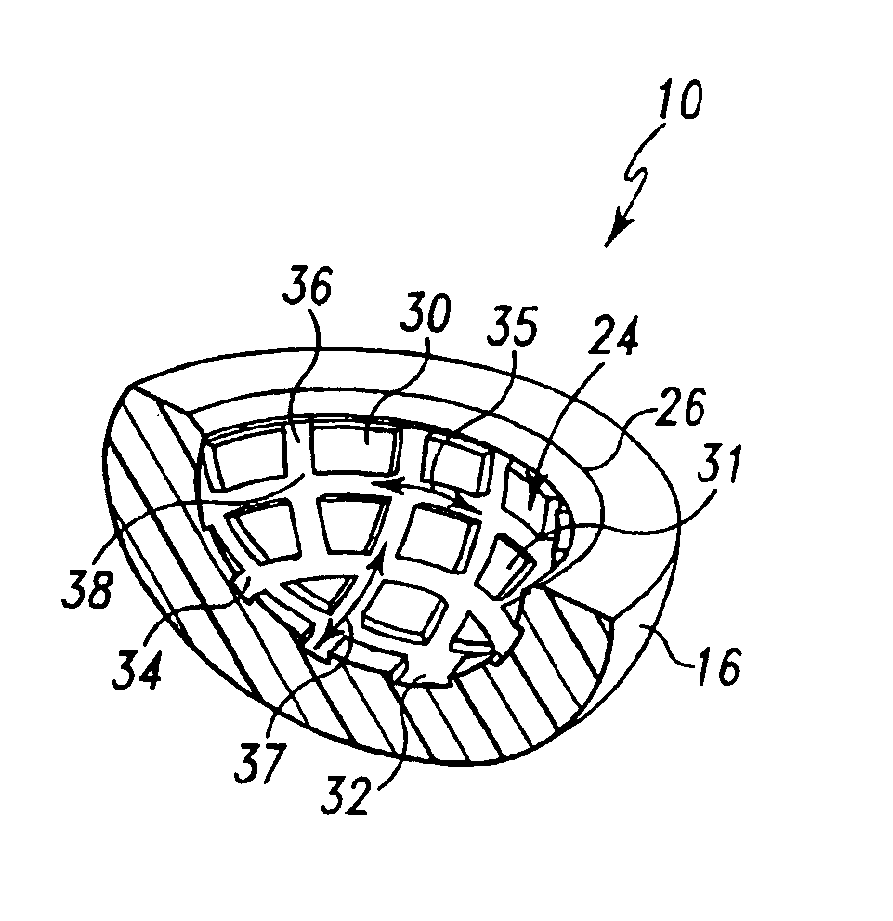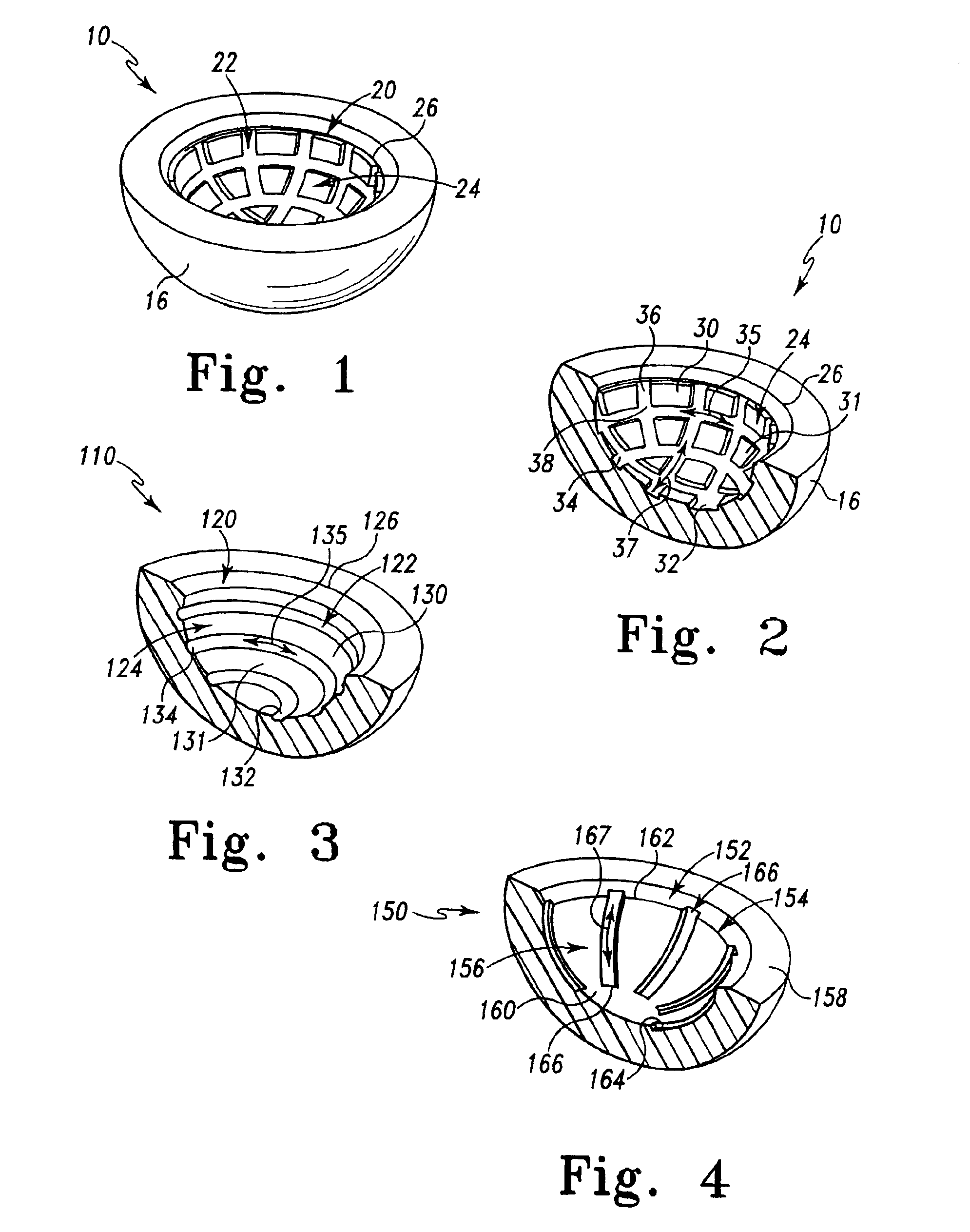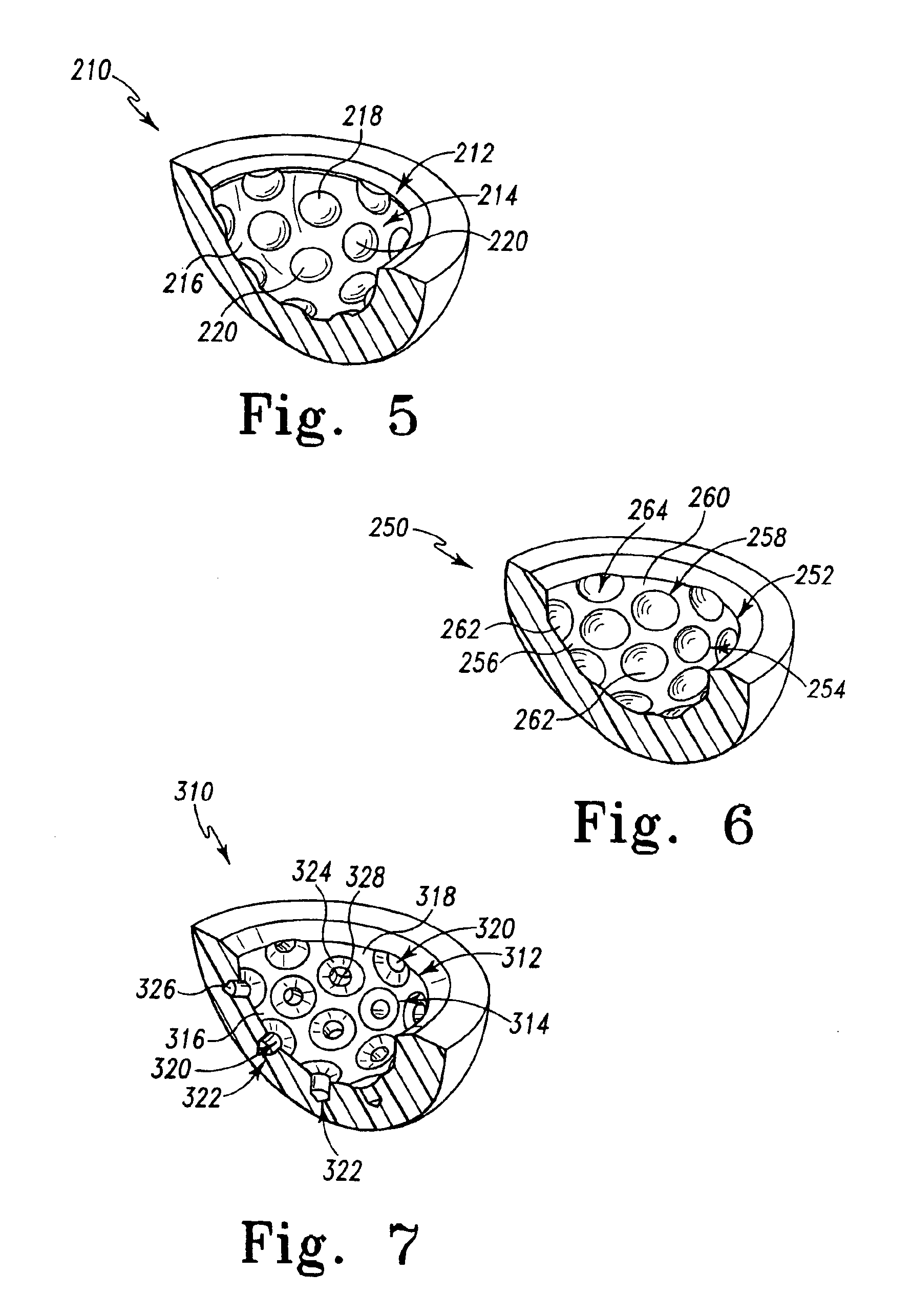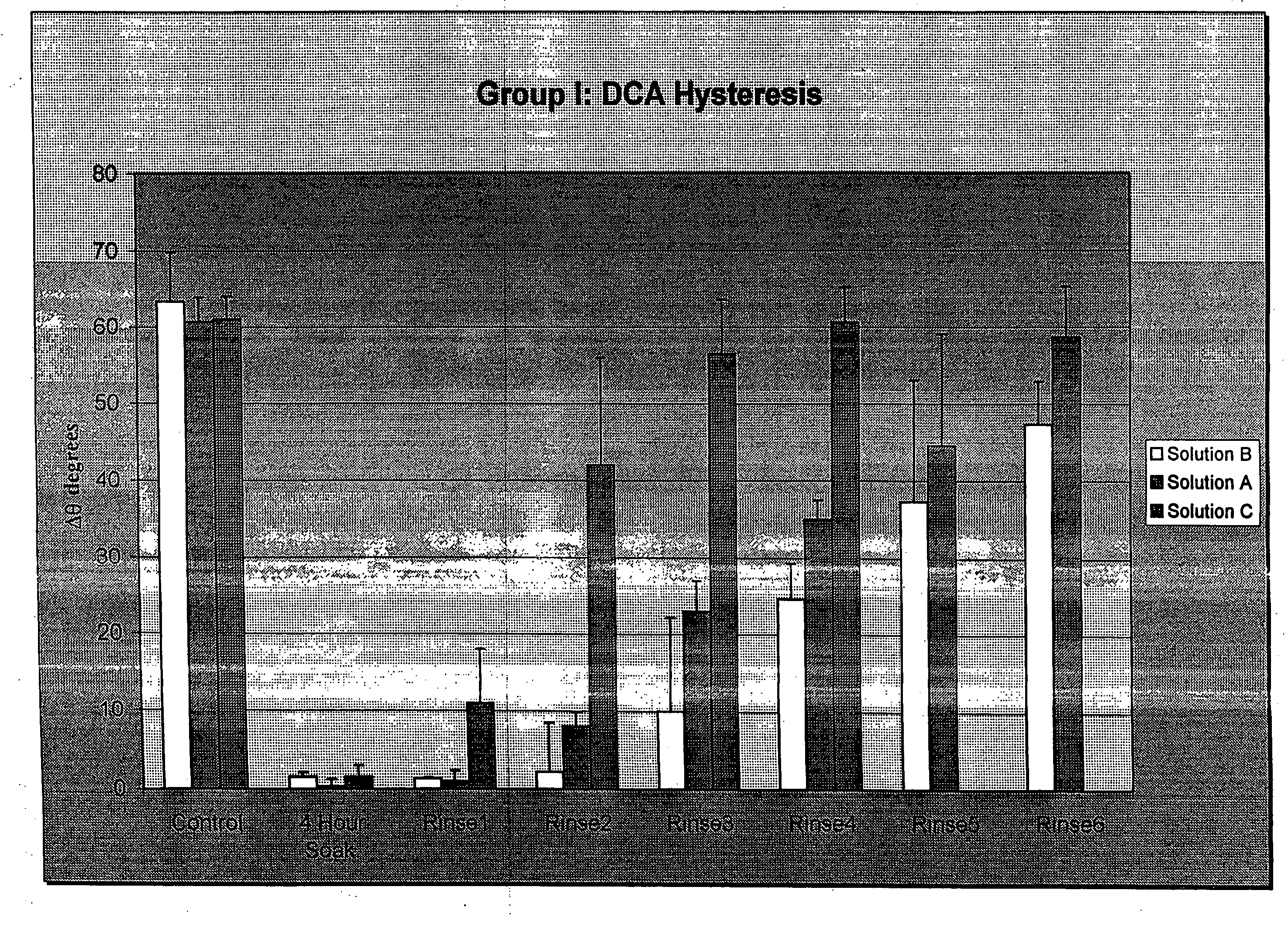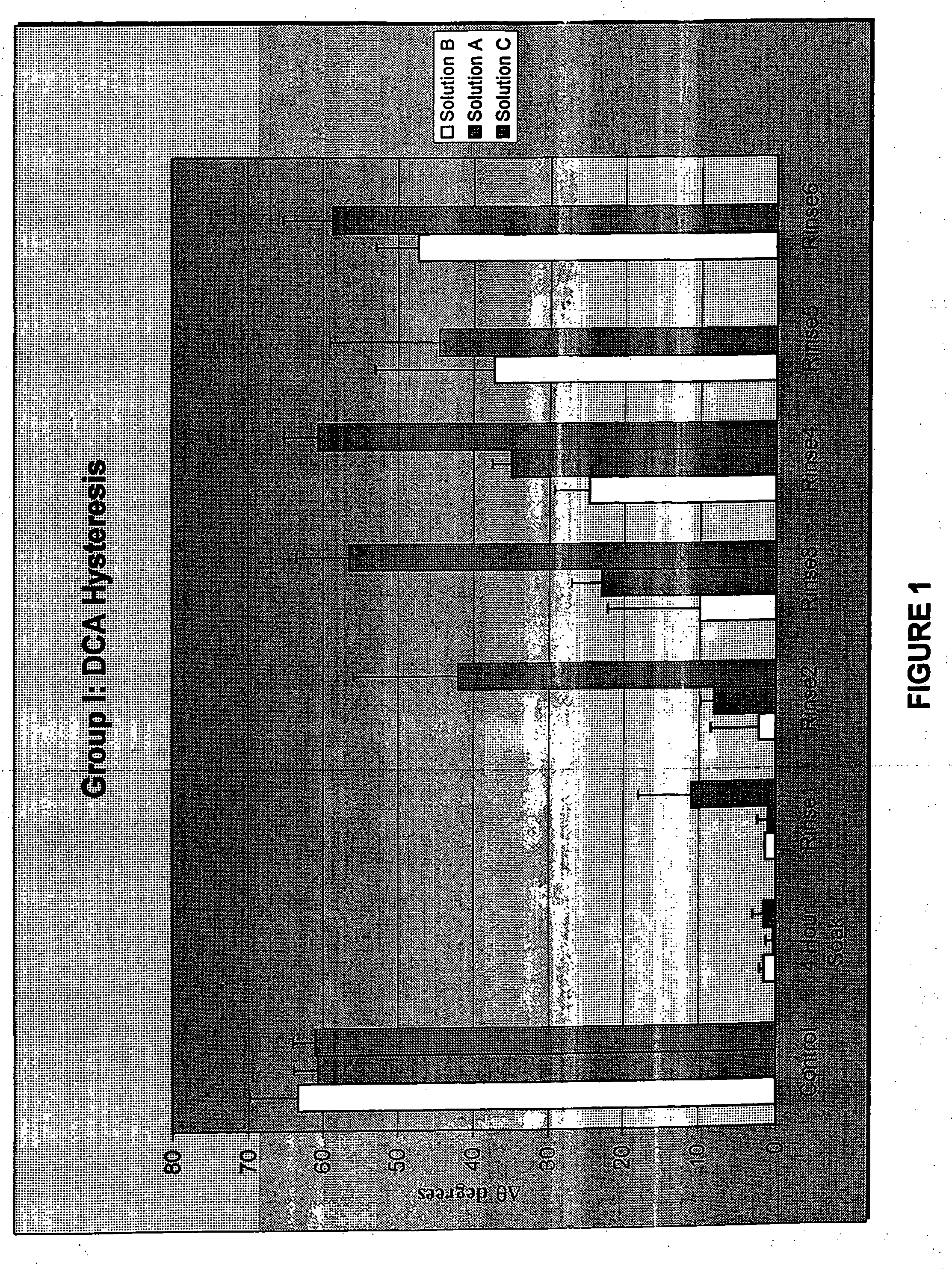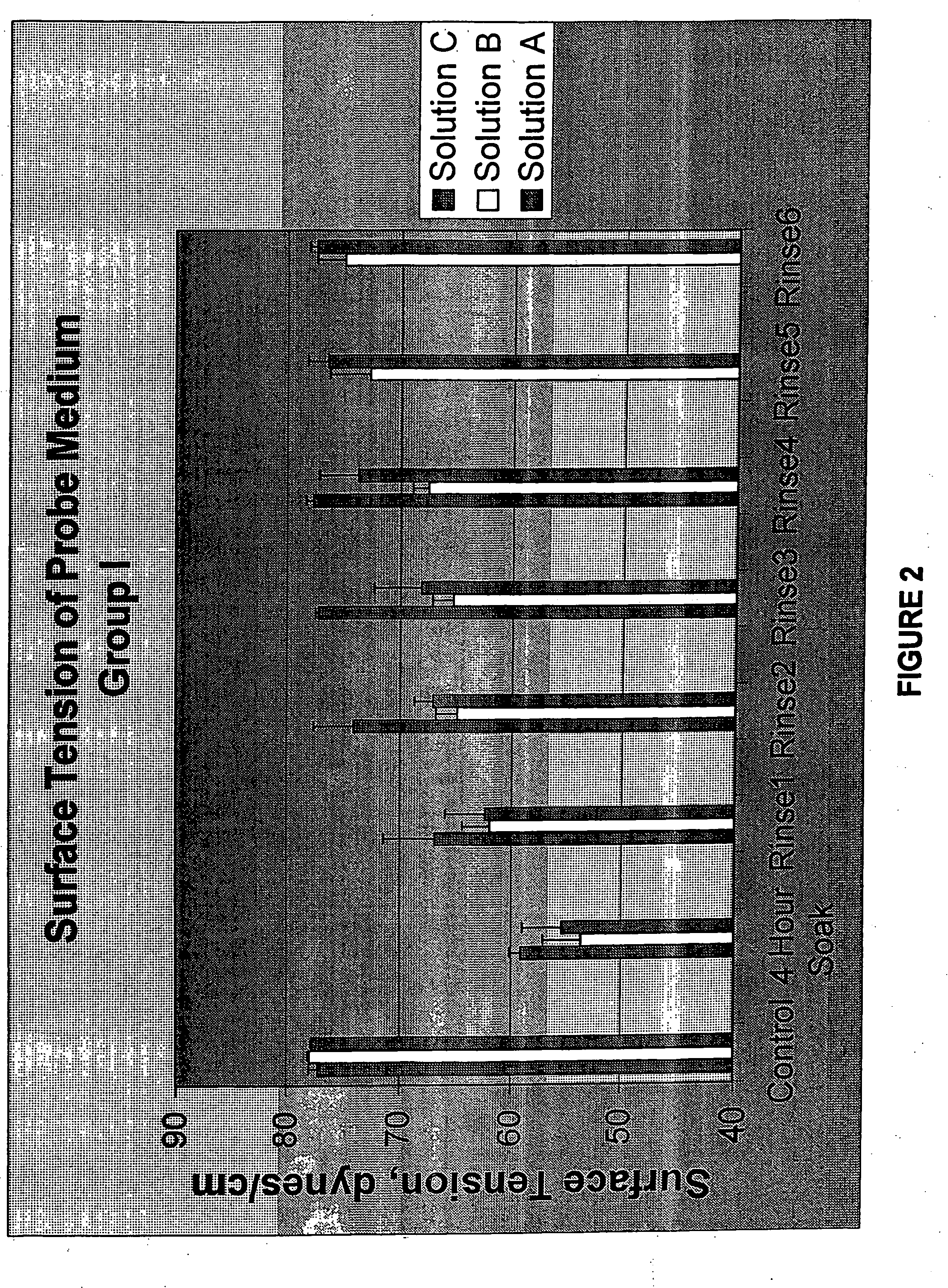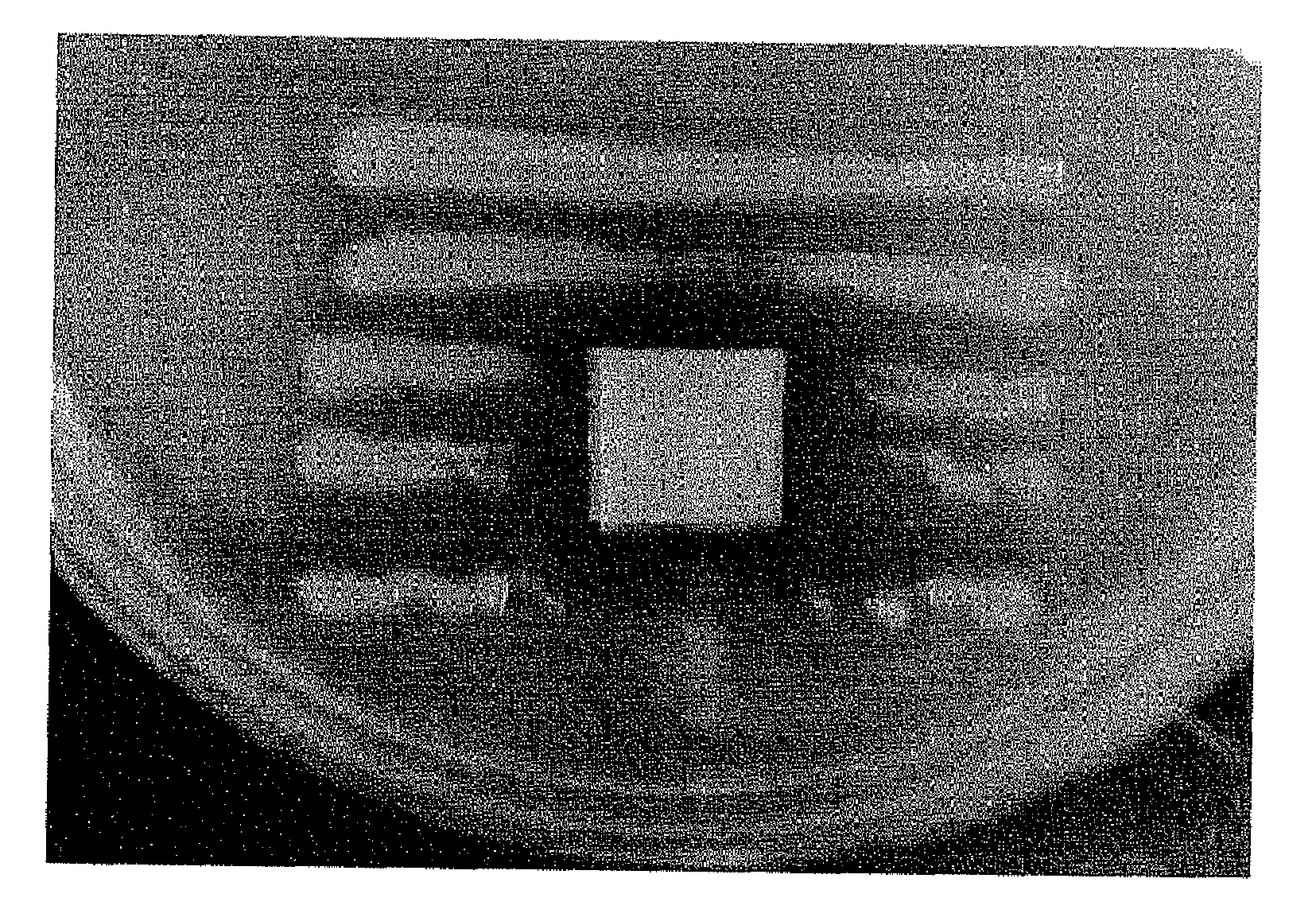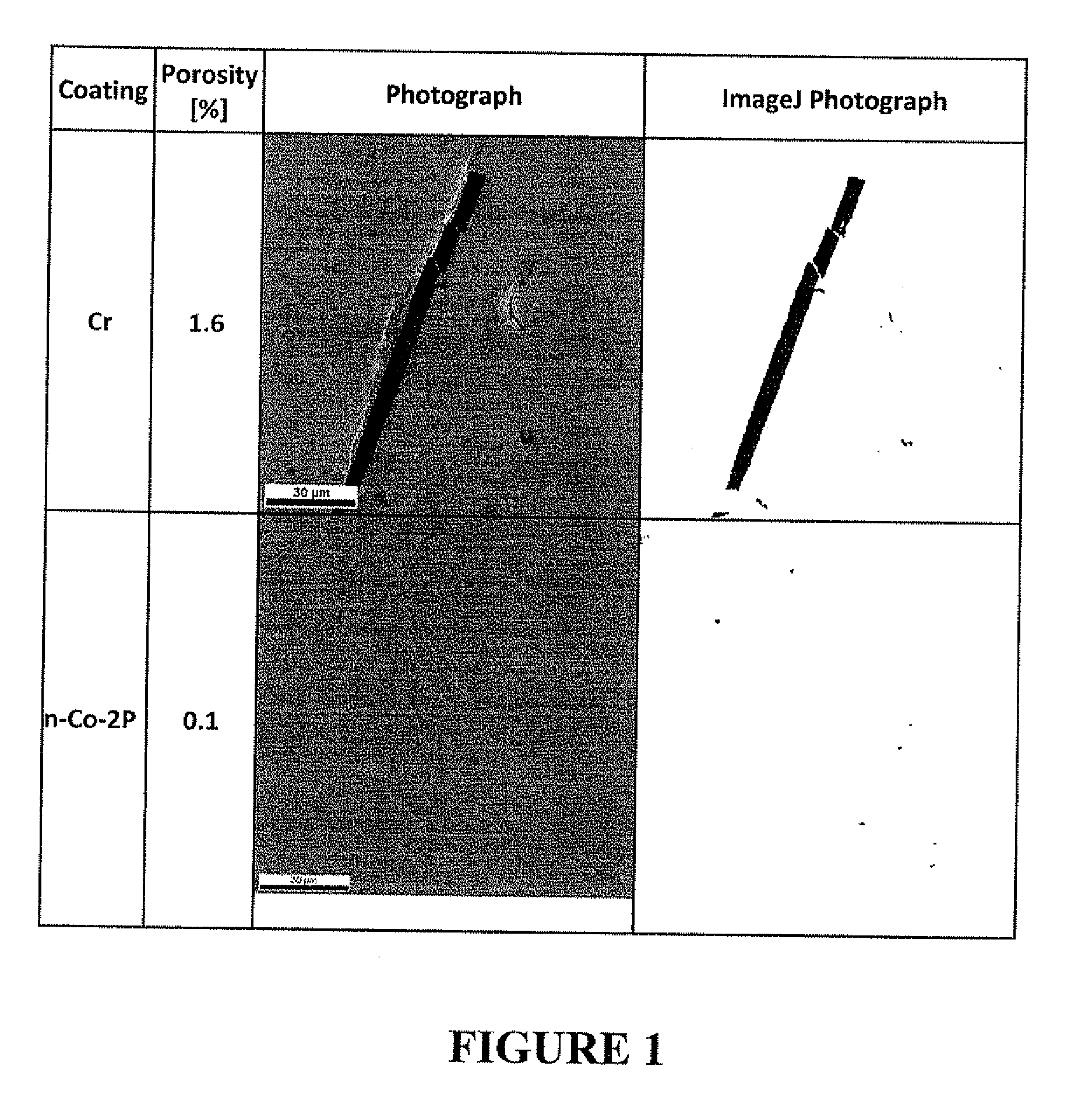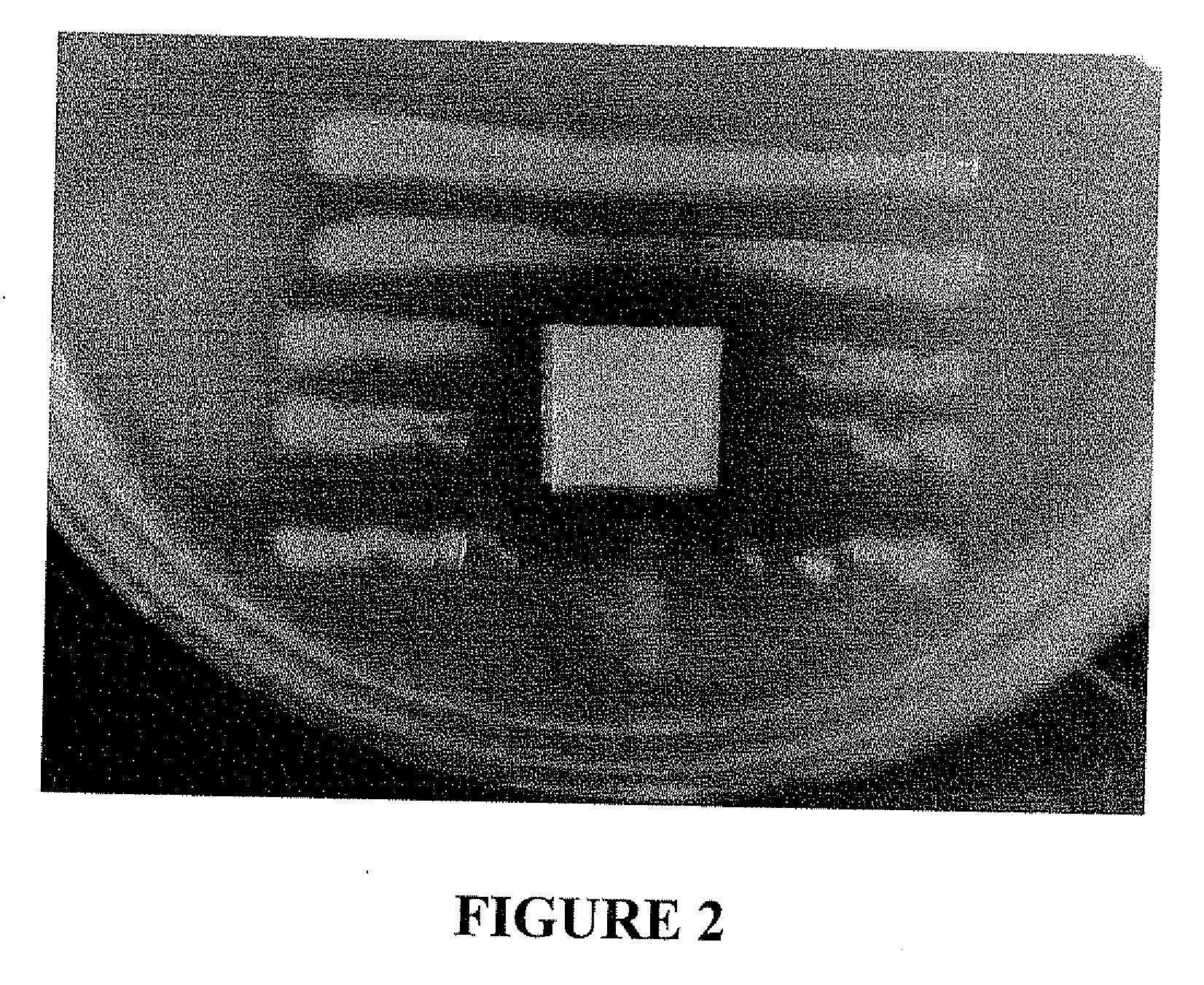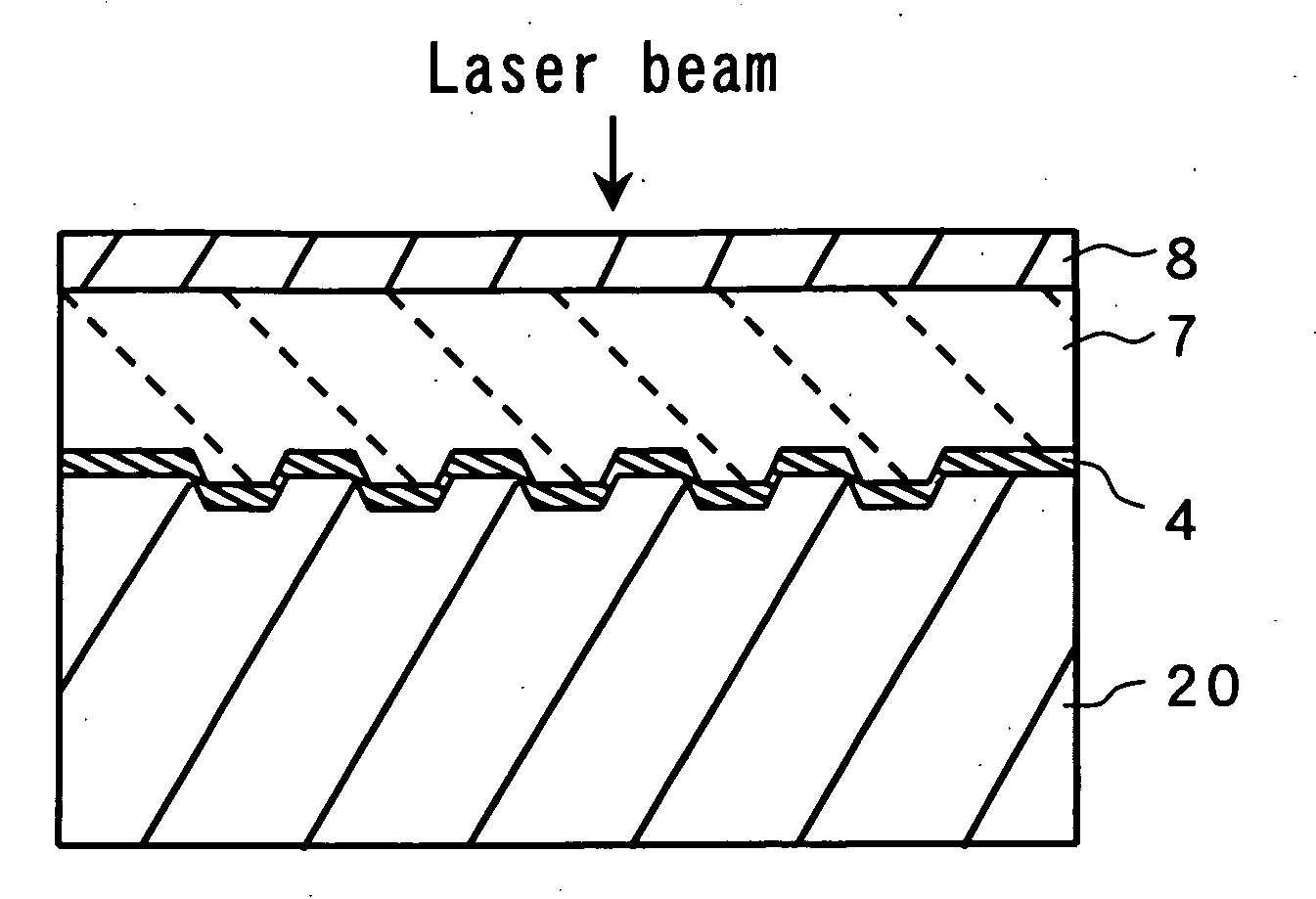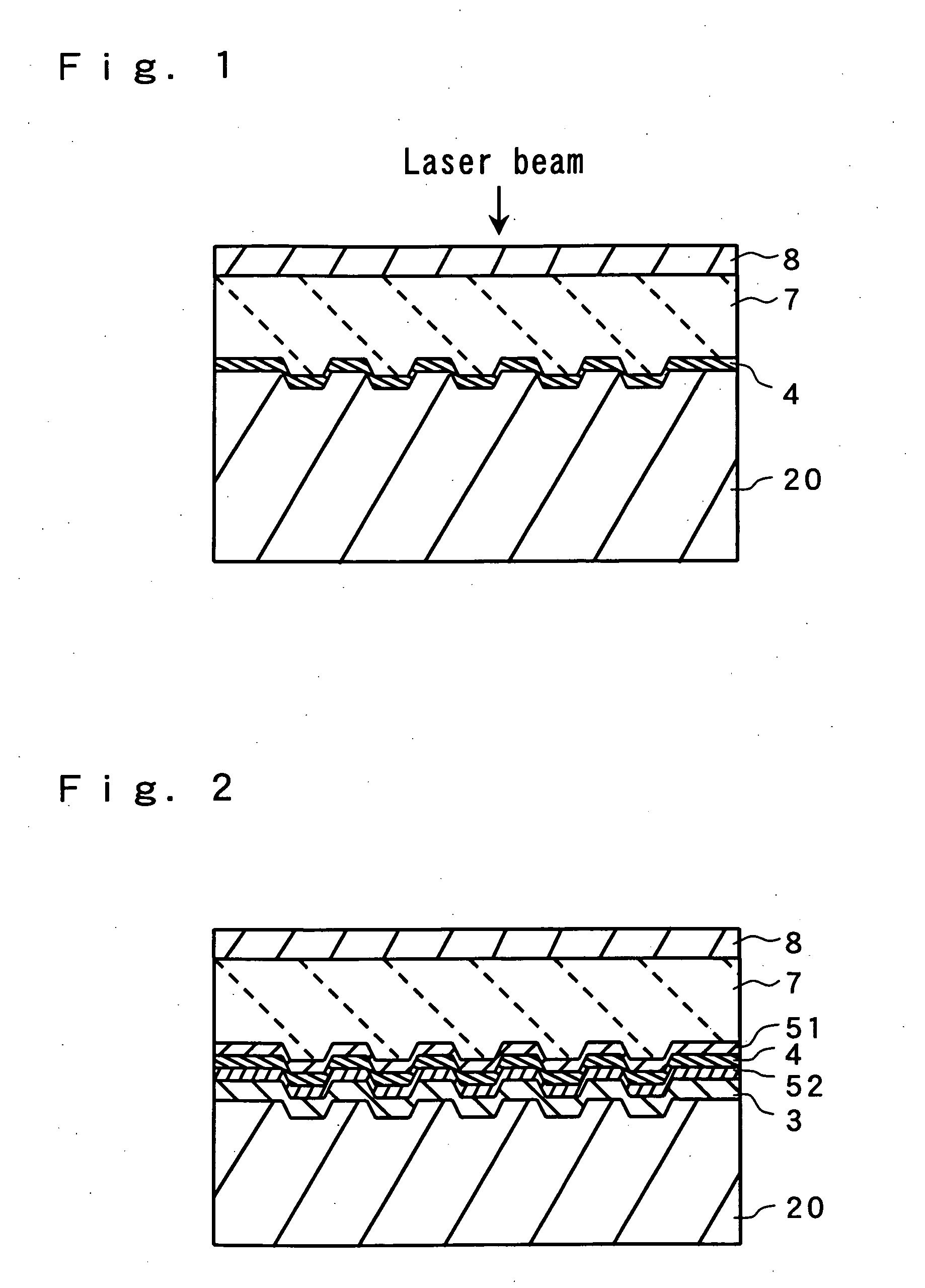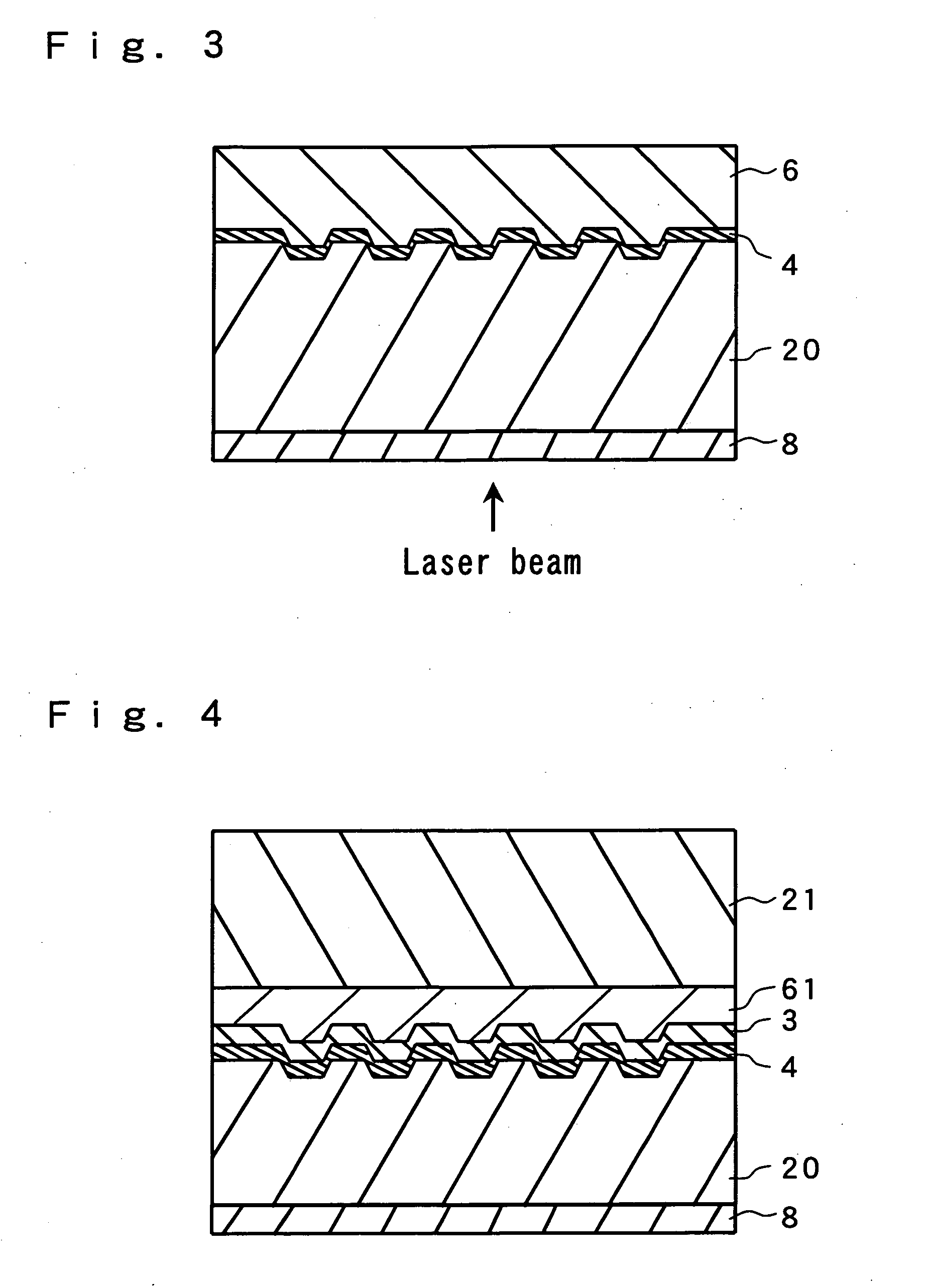Patents
Literature
Hiro is an intelligent assistant for R&D personnel, combined with Patent DNA, to facilitate innovative research.
3779 results about "Lubricity" patented technology
Efficacy Topic
Property
Owner
Technical Advancement
Application Domain
Technology Topic
Technology Field Word
Patent Country/Region
Patent Type
Patent Status
Application Year
Inventor
Lubricity is the measure of the reduction in friction and or wear by a lubricant. The study of lubrication and wear mechanisms is called tribology.
Medical devices having durable and lubricious polymeric coating
A medical device having a contact surface exposed repeatedly to bodily tissue is disclosed. The contact surface is coated with a silicone polymer and one or more non-silicone hydrophobic polymers. The preferred medical device is a surgical needle, and the preferred coating is a polydimethylsiloxane and polypropylene wax hydrocarbon mixture. The incorporation of the non-silicone hydrophobic polymer increases the durability of the coating on the device without sacrificing lubricity.
Owner:ETHICON INC
Coating composition for multiple hydrophilic applications
InactiveUS20030203991A1Tough and durable and printable surfaceImprove wettabilityOther chemical processesSynthetic resin layered productsColloidWear resistance
A coating composition is disclosed which comprises an aqueous polymeric matrix, a hydrophilic polymer, a colloidal metal oxide and a crosslinker. The coating composition when applied on medical devices is hydrophilic, shows improved lubricity, abrasion resistance and substrate adhesion on metallic or plastic substrates. The coating also shows improved water sheeting thus providing the coated substrates with anti-fog properties. The coating absorbs aqueous dye or stain solutions making the substrate suitable for printing.
Owner:HYDROMER INC
Coating composition for multiple hydrophilic applications
InactiveUS7008979B2Improve adhesionImprove the lubrication effectSurgerySynthetic resin layered productsColloidWear resistance
Owner:HYDROMER INC
Production of diesel fuel from vegetable and animal oils
A process for producing a fuel composition from vegetable and / or animal oil comprises hydrodeoxygenating and hydroisomerizing the oil in a single step. The fuel composition has acceptable lubricity and comprises a mixture of C14 to C18 paraffins having a ratio of iso to normal paraffins of 2 to 8 and less than 5 ppm sulfur.
Owner:BEN GURION UNIVERSITY OF THE NEGEV
Coating and/or treating hydraulic fracturing proppants to improve wettability, proppant lubrication, and/or to reduce damage by fracturing fluids and reservoir fluids
InactiveUS20050244641A1Reduce conductivityEfficient arrangementSynthetic resin layered productsCellulosic plastic layered productsFracturing fluidCompound (substance)
Surface modified oil and gas well hydraulic fracturing proppants for improving wettability, altering chemical reactivity, altering surface topography, imparting lubricity or controlling relative permeability to flow of fluids of such proppants. The use and preparation of such coated proppants in hydraulic fracturing of subterranean formations is also described.
Owner:CARBO CERAMICS
Micro-emulsion type metal cutting liquor composition
InactiveCN101240217AEasy to handleImprove the lubrication effectAdditivesBase-materialsMaterials scienceCutting fluid
Disclosed is a microemulsifying metal-cutting-fluid composition, comprising base oil or oily agent, mixed alcohol-amine, boric acid, anionic surfactant, nonionic surfactant, antirust agent, copper alloy corrosion inhibitor, preservative, deionized water and the like. The invention has the advantages of excellent lubricity, cooling ability, cleaning ability and a long lifetime of metal cutting fluid, being suited to various metal processing technologies such as cutting, reaming, boring, grinding. Also, the wastewater is easy to treat.
Owner:益田润石(北京)化工有限公司
Polymeric articles having a lubricious coating and method for making the same
InactiveUS6940580B2Improve hydrophilicityImprove the lubrication effectSynthetic resin layered productsCellulosic plastic layered productsExtended wear contact lensesLens materials
The present invention provides a medical device, preferably an ophthalmic device, more preferably a contact lens, which comprises a lubricious coating including a capping layer of polyvinylpyrrolidone and / or at least one layer of a lubricious coating material and one layer of a polyionic material having charges opposite of the charges of the lubricious coating material. The lubricious coating on the medical device of the invention has increased lubricity, preferably characterized by an averaged CoF of about 3.0 or less, increased hydrophilicity characterized by an averaged contact angle of about 80 degree or less, and increased bacterial adhesion resistance, while maintaining the desired bulk properties such as oxygen permeability and ion permeability of lens material. Such lenses are useful as extended-wear contact lenses. In addition, the invention provides a method for making a medical device, preferably a contact lens, having a lubricious coating thereon.
Owner:ALCON INC
Method for manufacturing cleaner fuels
InactiveUS6248230B1Long catalyst lifeReduce hydrogen consumptionLiquid hydrocarbon mixture productionTreatment with hydrotreatment processesBoiling pointGasoline
A method is provided for manufacturing cleaner fuels, in which NPC (Natural Polar Compounds), naturally existing in small quantities within various petrolic hydrocarbon fractions, are removed from the petrolic hydrocarbon fractions ranging, in boiling point, from 110 to 560° C. and preferably from 200 to 400° C., in advance of catalytic hydroprocessing. The removal of NPC improves the efficiency of the catalytic process and produces environment-friendly products, such as diesel fuel with a sulfur content of 50 ppm (wt) or lower. Also, the NPC can be used to improve fuel lubricity.
Owner:SK ENERGY CO LTD (KR)
Composite coating with nanoparticles for improved wear and lubricity in down hole tools
Owner:SMITH INT INC
Vessels, contact surfaces, and coating and inspection apparatus and methods
ActiveUS20120252709A1Reduce transmission of fluidReduce transmissionInfusion syringesBearing componentsProduct gasSurface barrier
Methods for processing a contact surface, for example to provide a gas barrier or lubricity or to modify the wetting properties on a medical device, are disclosed. First and second PECVD or other contact surface processing stations or devices and a contact surface holder comprising a contact surface port are provided. An opening of the contact surface can be seated on the contact surface port. The interior contact surface of the seated contact surface can be processed via the contact surface port by the first and second processing stations or devices. contact surface barrier, lubricity and hydrophobic coatings and coated contact surfaces, for example syringes and medical sample collection tubes are disclosed. A contact surface processing system and contact surface inspection apparatus and methods are also disclosed.
Owner:SI02 MEDICAL PRODS
Emulsification type metal cutting liquor composition
InactiveCN101240218AImprove the lubrication effectImprove cooling effectAdditivesBase-materialsPhenolCutting fluid
Disclosed is an emulsifying metal-cutting-fluid composition comprising base oil or oily agent, mixed alcohol-amine, anionic surfactant, nonionic surfactant, antirust agent, copper alloy corrosion inhibitor, preservative and the like. The invention has a strong general usability, suitable for metal processing, particularly aluminum alloy metal processing with advantages of excellent lubricity, corrosion resistance, a low cost and being free of toxic or harmful substances such as nitrites and phenols, so as to keep the environment and operators away from harmfulness.
Owner:河北九熙新材料科技有限公司
Spiral-based axial flow devices
Axial flow devices using rigid spiral band profiled blade catenaries attached variably along and around an axially elongated profiled hub, of axially oriented profile section sequences 75 mapped relative to truncated cones-of-generation. Upon rotation and lubricity-masked progression through axial planes-of-shear, this time-domain sequence travels in 2-dimensional axial-datum-plane-relative path-excursions and ejects frictional adhesions via anguillar reverse vortex street thrust due to an after-body accelerating wave shape-sequence 48. This guides bound vortex pressures at linear path-velocity substantially parallel to the collective plane-of-shear, conferring higher differential pressures through path-vector-addition, improved force-vector orientation, extended laminar flows, lower form drag and tip vorticity. As a wind turbine, path-vectors are added to inflow, ducting an increased mass flow inward for increased power extraction per diameter. As a propeller, path-vector-subtraction guides the wave front flight-path-transverse, allowing higher flight velocities and improving thrust-per-torque through enhanced force vectors and mass flow rates.
Owner:POLACSEK RONALD R
Carbon nanoparticle-containing lubricant and grease
InactiveUS20070158609A1Modulate viscosityImprove thermal conductivityMaterial nanotechnologyHeat-exchange elementsCarbon nanotubeMaterials science
The present invention relates to processes for preparing a stable suspension of carbon nanoparticles in a thermal transfer fluid to enhance thermal conductive properties, viscosity, and lubricity. One process is to disperse carbon nanoparticles directly into a thermal transfer fluid and other additives in the present of surfactants with intermittent ultrasonication. The second process is carried out in three stages. First, carbon nanoparticles are dispersed into a volatile solvent. Then, a thermal transfer fluid, surfactants, and other additives are added into this intermediate dispersion and mixed thoroughly. At last, the volatile solvent is removed to produce a uniformly dispersed nanofluid. The third process is to disperse carbon nanoparticles at an elevated temperature into a homogeneous mixture of surfactants and other additives in a thermal transfer fluid with help of a physical agitation. The present invention also relates to compositions of carbon nanoparticle nanofluids, such as nanolubricants and nanogreases. The nanofluid of the present invention is a dispersion of carbon nanoparticles, particularly carbon nanotubes, in a thermal transfer fluid in the present of surfactants. Addition of surfactants significantly increases the stability of nanoparticle dispersion. For nanogreases, carbon nanoparticles function both as a thickener to modulate viscosity and as a solid heat transfer medium to enhance thermal conductivity and high temperature resistance.
Owner:SOUTH DAKOTA SCHOOL OF MINES AND TECHNOLOGY
High viscosity antibacterials
InactiveUS20050042240A1Low viscosityReduce evaporationBiocideHydroxy compound active ingredientsAlcoholViscosity
An antibacterial fluid may be applied to a tubular medical cannula for access to a patient. The fluid comprises a typically metabolizable antibacterial formulation having a viscosity of at least about 5,000 cp. The cannula may then be inserted into the patient with an increased lubricity for a reduction of pain, while at the same time, unlike silicones, preferred materials do not readily accumulate in the patient. The tubular medical cannula may be a rigid, hollow needle, sharp or blunt, a spike, or a flexible catheter. Also, the viscous antibacterial fluid may be used to lock a catheter or other cannula while implanted in the patient, for storage purposes. The formulation is typically an alcohol plus a viscosity increasing agent.
Owner:DSU MEDICAL
Water-based cutting fluid used in slice machining of hard brittle crystal material and preparation method of water-based cutting fluid
InactiveCN102618374AGuaranteed lubrication effectGuaranteed anti-rust performanceAdditivesWater basedTool wear
The invention discloses a water-based cutting fluid used in slice machining of a hard brittle crystal material, comprising the following compositions: base oil, organic amine, organic acid, synthetic ester, emulsifier, rust and corrosion inhibitor, dispersion flocculation and hard-water resisting agent, antiseptic bactericide, antifoaming agent, coupling agent, adjuvant and a proper amount of water. Aiming at the machining techniques of inner circle slicing and outer circle slicing, the water-based cutting fluid has good generality, lubricity, strong antirust property and a long service life; when the cutting fluid is used, the machining situation can be observed easily, the cooling property is good, the cleaning and the permeability are strong, cuttings subside easily, and the machining problems of machining error, crack and the like caused by cutter blocking, abrasion and the like are solved; according to the invention, the problems that cuttings are easy to adhere and suspend, a cutter is seriously abraded, a machined product cracks easily, the accuracy is not high, the machining efficiency is low, the later period cleaning is complex and the like existing in the current slice machining of the hard brittle crystal material are solved, and further, a machine bed is protected, and the cost is reduced.
Owner:AMER TECH CO LTD
Paraffinic Biologically-Derived Distillate Fuels With Bio-Oxygenates For Improved Lubricity And Methods Of Making Same
ActiveUS20090031617A1Improve the lubrication effectImprove efficiencyFatty acid chemical modificationRefining to change hydrocarbon structural skeletonParaffin waxIsomerization
The present invention is generally directed to methods for making fuels from biomass comprising triglyceride species, whereby the biomass is subjected to partial hydrodeoxygenation and (optionally) catalytic isomerization. The partial-hydrodeoxygenation of the triglyceride species produces a fuel that retains some oxygenates for enhanced lubricity.
Owner:CHEVROU USA INC
Lubricity maintaining image forming apparatus and process cartridge
An image forming apparatus comprises an image bearer that carries a toner image, and a lubricant supplying device that supplies lubricant to the surface of the image bearer. A lubricant supplying device is provided in the image forming apparatus and includes a lubricant block and a brush roller. The brush roller shaves and supplies the lubricant from the lubricant block to the image bearer via the brush roller. The lubricant at least includes a mixture of boron nitride and fatty acid metallic salt.
Owner:RICOH KK
High viscosity antibacterials
InactiveUS20060024372A1Low viscosityReduce evaporationBiocidePowder deliveryAlcoholGrommet Insertion
An antibacterial fluid may be applied to a tubular medical cannula for access to a patient. The fluid comprises a typically metabolizable antibacterial formulation having a viscosity preferably greater than 150,000 cp. The cannula may then be inserted into the patient with an increased lubricity for a reduction of pain, while at the same time, unlike silicones, preferred materials do not readily accumulate in the patient. The fluid may be placed on the skin. The tubular medical cannula may be a rigid, hollow needle, sharp or blunt, a spike, or a flexible catheter. Also, the viscous antibacterial fluid may be used to lock a catheter or other cannula while implanted in the patient, for storage purposes. The formulation is typically an alcohol plus a viscosity increasing agent and optionally a surfactant, a clotting agent, and / or EDTA.
Owner:DSU MEDICAL
Methods and devices having electrically actuatable surfaces
The present invention generally relates to the field of insertable or implantable medical devices, such as balloon catheters, stents and other similar diagnostic or therapeutic devices which may be provided within the body for treatment and / or diagnosis of diseases and conditions. In particular, the present invention relates to devices whose surfaces are electrically actuatable between a hydrophobic state and a less hydrophobic state or a hydrophilic state. Such devices include drug-eluting devices such as balloon catheters and stents which release therapeutic agents upon the application of an electric field. Such devices further include devices such as balloon catheters and stents whose lubricity may be modulated in situ by the application of an electric field.
Owner:BOSTON SCI SCIMED INC
Implantable textile prostheses having PTFE cold drawn yarns
The present invention provides an implantable prosthesis and more specifically, an implantable tubular textile prosthesis comprising a biocompatible fabric having inner and outer surfaces and first and second ends; the fabric having a textile construction comprising cold drawn PTFE yarns having a substantially uniform denier and high molecular orientation. Use of cold drawn PTFE yarns result in implantable prostheses that have excellent abrasion resistance, strength and lubricity properties. Useful textile constructions include weaves, knits, braids, filament windings, spun windings and combinations thereof. The prostheses of the present invention are lubricious and have characteristics that closely resemble the properties of a natural body lumen.
Owner:LIFESHIELD SCI
Vessel inspection apparatus and methods
ActiveUS20110252899A1Simplified determinationGlovesPharmaceutical delivery mechanismMarine engineeringBlood vessel
Methods for processing a vessel, for example to provide a gas barrier or lubricity, are disclosed. First and second PECVD or other vessel processing stations or devices and a vessel holder comprising a vessel port are provided. An opening of the vessel can be seated on the vessel port. The interior surface of the seated vessel can be processed via the vessel port by the first and second processing stations or devices. Vessel barrier, lubricity and hydrophobic coatings and coated vessels, for example syringes and medical sample collection tubes are disclosed. A vessel processing system and vessel inspection apparatus and methods are also disclosed, for example using material outgassed from a surface to inspect the properties of a surface coating.
Owner:SI02 MEDICAL PRODS
Personal cleansing and shaving films
InactiveUS20060228319A1Improve aestheticsCleansing hairCosmetic preparationsHair removalPersonal carePlasticizer
Personal care composition in the form of a dry film useful in cleansing or shaving. The film includes at least one water soluble polymer in an amount of about 45 to about 82 weight %, based on total weight of dry film, and, when used for cleansing, at least one surfactant in an amount of about 18 to about 55 weight %; based on total weight of dry film. The at least one water soluble polymer can include blends of polymers. Other additional ingredients for use in the film include plasticizers and / or neutralizing agents. The personal cleansing dissolvable films provide improved aesthetics, foaming, cleansing, moisturizing and lubricity.
Owner:AKZO NOBEL NV
Method of Increasing Lubricity of Brine-based Drilling Fluids and Completion Brines
ActiveUS20100016180A1Increase completionImprove the lubrication effectFluid removalFlushingSolubilityVegetable oil
The lubricity of a drilling fluid or a completion fluid may be increased by incorporating into the fluid a water-soluble or water-dispersible salt of a sulfonated (sulfated) vegetable oil or a derivative thereof, such as a sulfonated (sulfated) castor oil. Suitable derivatives include the sodium, potassium, calcium, magnesium or ammonium salt. A non-ionic or anionic surfactant which is capable of enhancing the solubility of the salt may further be incorporated into the drilling fluid or completion fluid.
Owner:BAKER HUGHES INC
Prosthetic joints having reduced area bearing surfaces and application thereof to a range of sizes of prosthetic joints
InactiveUS6866685B2Reduce frictional torqueReduce wearWrist jointsAnkle jointsRange of motionProsthesis
A prosthetic component is configured to have intentional interruptions in an articulating face thereof. The intentional interruptions are configured to yield an optimum contact area or bearing surface, particularly with regard to low wear and greater lubricity through the application of lubrication and contact mechanics theory for the particular prosthetic component. Such optimization is applied to a wide range of prosthetic component sizes of the particular prosthetic component. The optimum range of percentage area of relief or interruptions, defined as a percentage of a baseline uninterrupted bearing surface area to be removed by the features of the interrupted bearing surface configuration is from 0.3% to 73.7% for hard-on-hard bearing components and from 5.7% to 83.2% for polyethylene-on-hard bearing components. The range for both hard-on-hard and polyethylene-on-hard implants translates to a relieved area ranging from 0.3% to 31.9% of the area of the entire articulating surface, depending on the size of the implant. For both hard-on-hard and polyethylene-on-hard bearing combinations, optimally decreasing the contact area or bearing surface by interruptions in the articulating surfaces will allow for the benefits of larger diameter prosthetic components with an increased range of motion and decreased potential for dislocation, and the low frictional torques and lower wear of smaller diameter components.
Owner:DEPUY ORTHOPAEDICS INC
Method and composition for contact lenses
InactiveUS20060073185A1Reduce drynessLonger wetting performancePharmaceutical delivery mechanismProsthesisCationic polyelectrolytesChemistry
A solution for soft, hydrogel contact lenses includes a polyether that is controllably released into an eye's tear film when the lens is worn. Polyether components of the subject solution are released from the soft contact lens material matrix over long time periods to produce longer lasting wetting performance, improved lubricity, improved comfort, and / or reduced feeling of dryness from wearing contact lenses. The solution further includes a cationic polyelectrolyte.
Owner:BAUSCH & LOMB INC
Electrodeposited metallic-materials comprising cobalt
ActiveUS20100304182A1Reduce resistanceEliminate security concernsEnvelopes/bags making machineryRecord information storageParticulatesPorosity
Free standing articles or articles at least partially coated with substantially porosity free, fine-grained and / or amorphous Co-bearing metallic materials optionally containing solid particulates dispersed therein, are disclosed. The electrodeposited metallic layers and / or patches comprising Co provide, enhance or restore strength, wear and / or lubricity of substrates without reducing the fatigue performance compared to either uncoated or equivalent thickness chromium coated substrate. The fine-grained and / or amorphous metallic coatings comprising Co are particularly suited for articles exposed to thermal cycling, fatigue and other stresses and / or in applications requiring anti-microbial properties.
Owner:INTEGRAN TECH
Hard coat agent composition and optical information medium using the same
InactiveUS20050158504A1Reduce coefficient of frictionImprove scratch resistanceLayered productsRecord information storageReflective layerRecording layer
The present invention provides a hard coat agent composition that is useful for forming a hard coat layer with excellent anti-staining properties and lubricity, as well as superior scratch resistance and abrasion resistance, on the surfaces of various articles. The present invention also provides an optical information medium using the above hard coat agent composition. A hard coat agent composition comprising a fluorine-containing block copolymer (A1), a fluorine-containing polyether compound (A2) comprising an active energy ray-reactive group, and an active energy ray-curable compound (B). An optical information medium comprising a film element composed of one or more layers including at least a recording layer (4) or a reflective layer, on a supporting substrate (20), wherein at least one of the supporting substrate (20)-side surface and the film element-side surface is formed of a hard coat layer (8) comprising a cured product of the hard coat agent composition.
Owner:TDK CORPARATION
Lubricant composition
Use of a liquid composition for lubricating conveyor belts is provided, said liquid composition being suitable for producing a “dry” lubricant film on a surface by discontinuous application thereof, wherein the liquid composition can also be used for continuous application to a conveyor belt surface, with or without further dilution with water, to remove incidental spillages of extraneous material from the conveyor belt surface without loss of the required lubricity.This liquid composition was found to exhibit remarkably good durability.
Owner:JOHNSONDIVERSEY INC
Hydrophilic coating and substrates coated therewith having enhanced durability and lubricity
InactiveUS20020013549A1Improve adhesionExcellent wear resistance and lubricitySurgeryCellulosic plastic layered productsHydrophilic coatingOrganic acid
A substrate, such as a catheter or a guide wire, or a portion of the substrate is provided with a lubricous, hydrophilic abrasion-resistant coating by: (a) coating the substrate with a first aqueous coating composition having an aqueous dispersion or emulsion of a polymer having organic acid functional groups and a polyfunctional crosslinking agent having functional groups capable of reacting with organic acid groups, and drying the coating to obtain a substantially water-insoluble coating layer having excess polyfunctional including functional groups being reactive with organic acid groups remaining; and (b) contacting the dried water-insoluble coating layer with a second aqueous coating composition having an aqueous solution or dispersion of a hydrophilic polymer having organic acid functional groups, a polymer having organic acid functional groups and a polyfunctional crosslinking agent having functional groups capable of reacting with organic acid groups, and drying the combined coating to form an intermediate coating, whereby the polymer and the hydrophilic polymer of the second composition become bonded to the polymer of the first coating composition through the excess crosslinking agent; and (c) contacting the dried intermediate coating with a third aqueous coating composition having an aqueous solution or dispersion of a hydrophilic polymer having organic acid functional groups, and drying the combined coatings, the hydrophilic polymer of the third coating composition thereby becoming bonded to the polymers of the second coating composition through the excess crosslinking agent. The dryings can be carried out at ambient (room) temperature.
Owner:BOSTON SCI SCIMED INC
Lubricious compositions and articles made therefrom
The present disclosure provides a lubricious polymeric composition that includes polymer and one or more lubricants. Articles formed from the lubricious polymeric composition possess enhanced softness, flexibility and lubricity. The present disclosure also provides a method for making an article formed from a lubricious polymeric composition having polymer and one or more lubricants.
Owner:EDGEWELL PERSONAL CARE BRANDS LLC
Features
- R&D
- Intellectual Property
- Life Sciences
- Materials
- Tech Scout
Why Patsnap Eureka
- Unparalleled Data Quality
- Higher Quality Content
- 60% Fewer Hallucinations
Social media
Patsnap Eureka Blog
Learn More Browse by: Latest US Patents, China's latest patents, Technical Efficacy Thesaurus, Application Domain, Technology Topic, Popular Technical Reports.
© 2025 PatSnap. All rights reserved.Legal|Privacy policy|Modern Slavery Act Transparency Statement|Sitemap|About US| Contact US: help@patsnap.com
